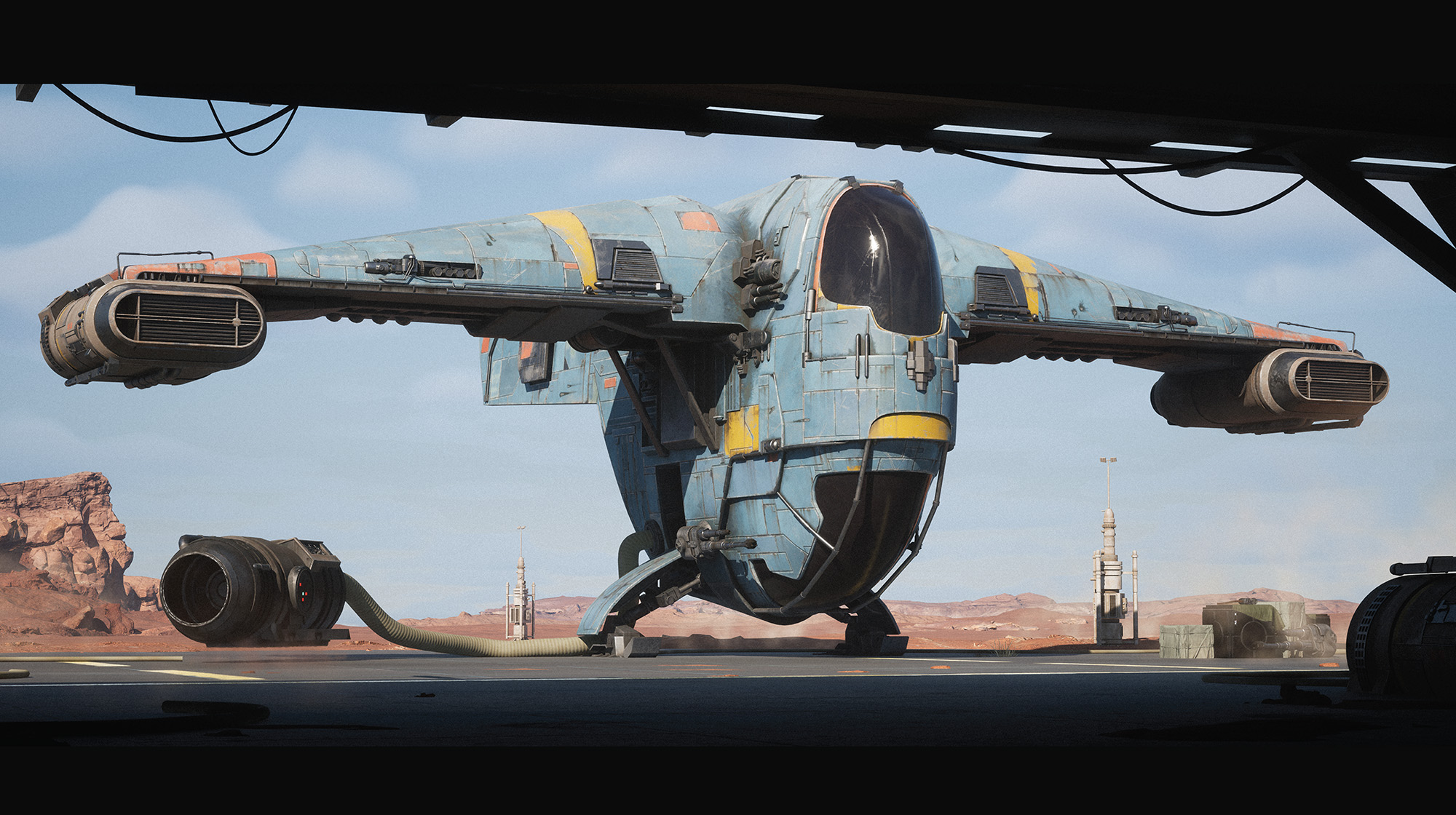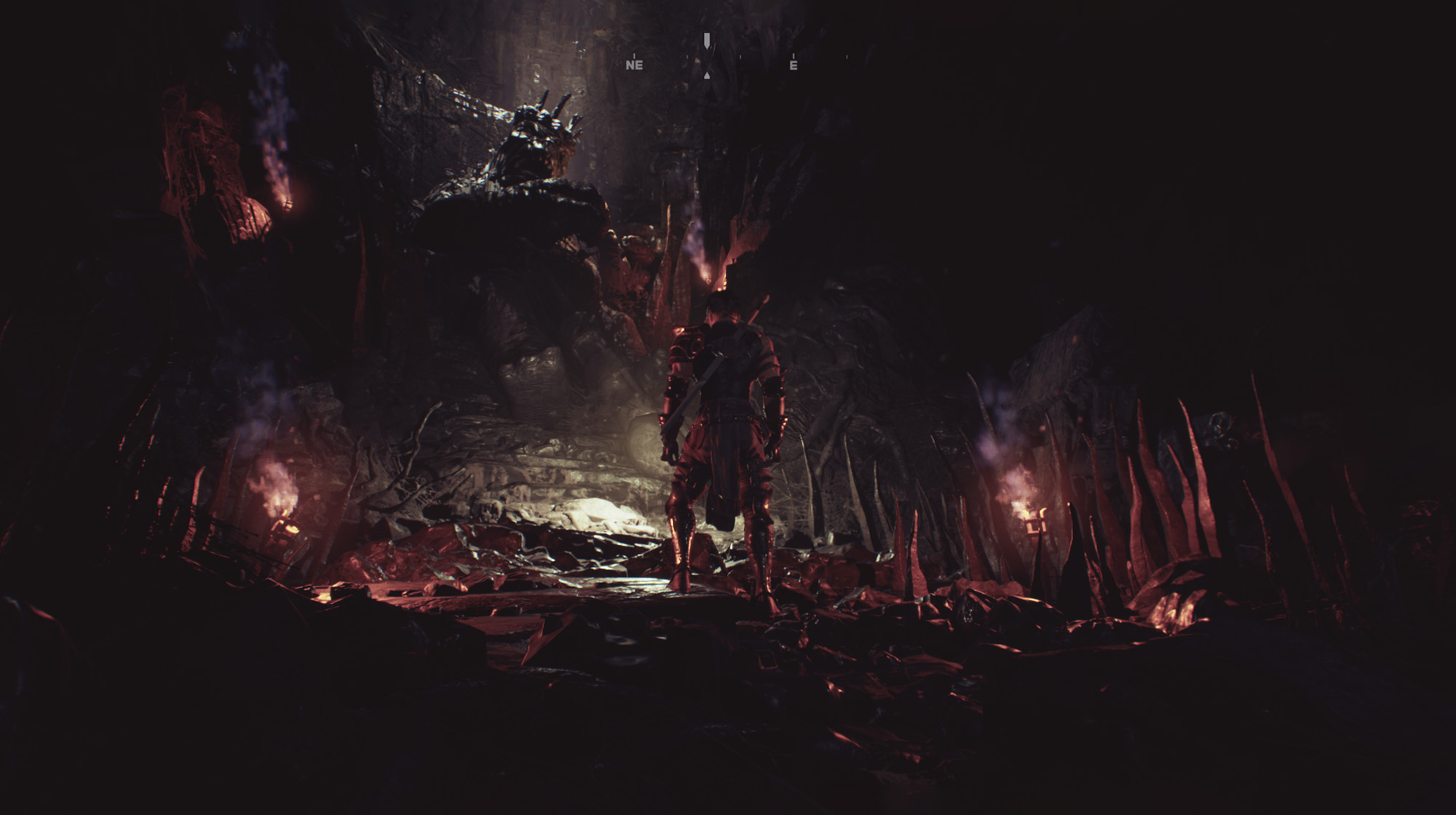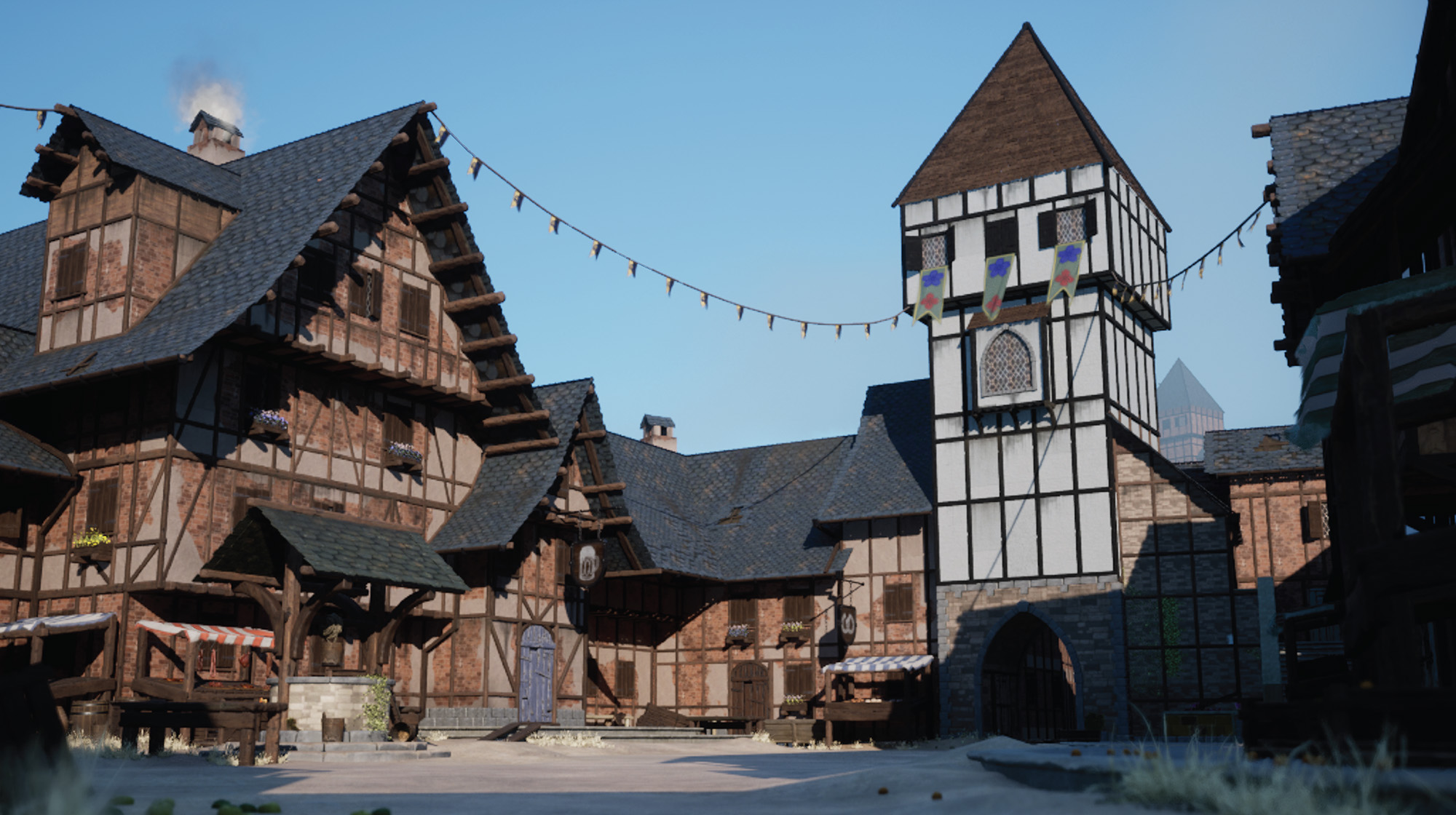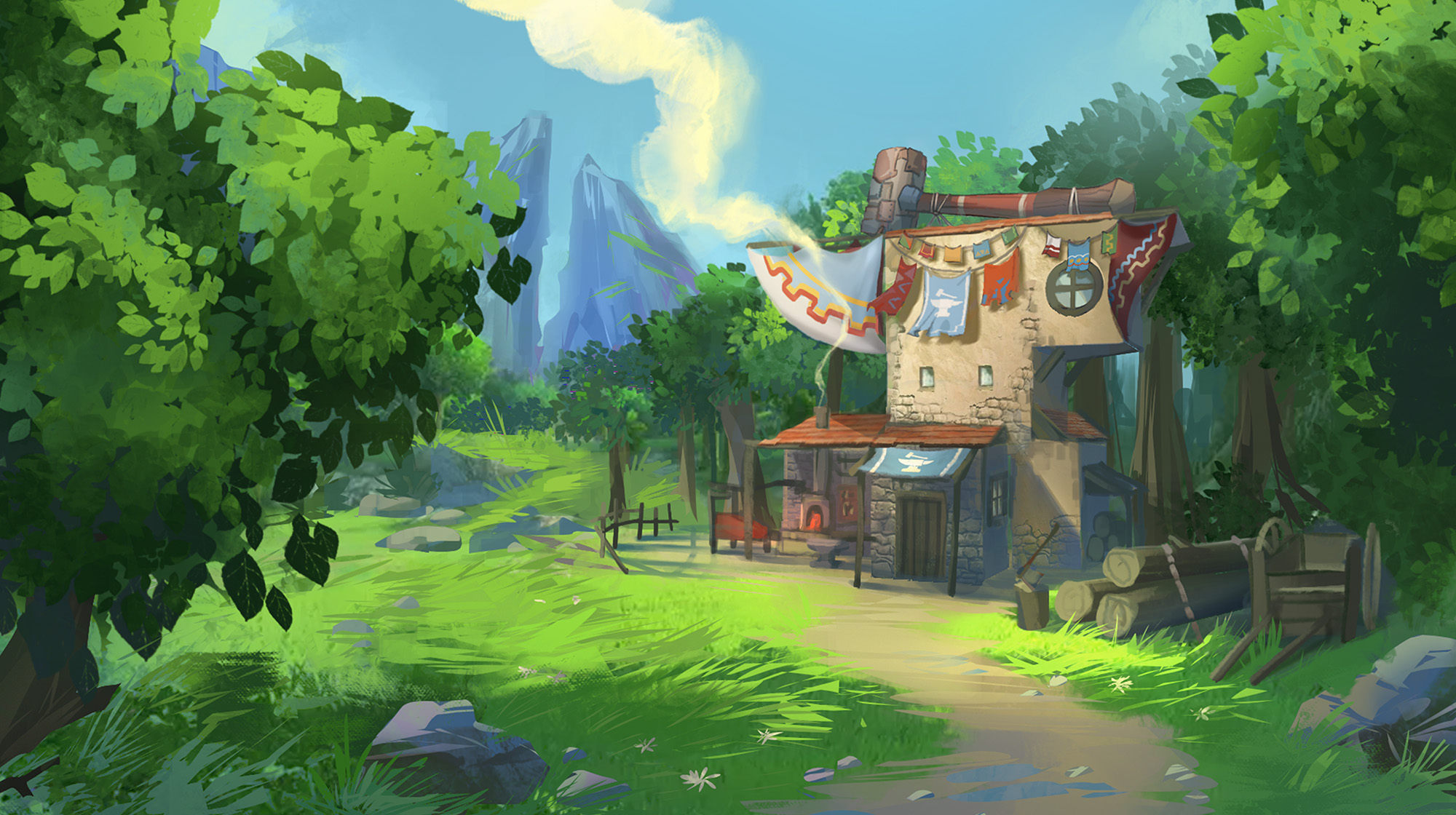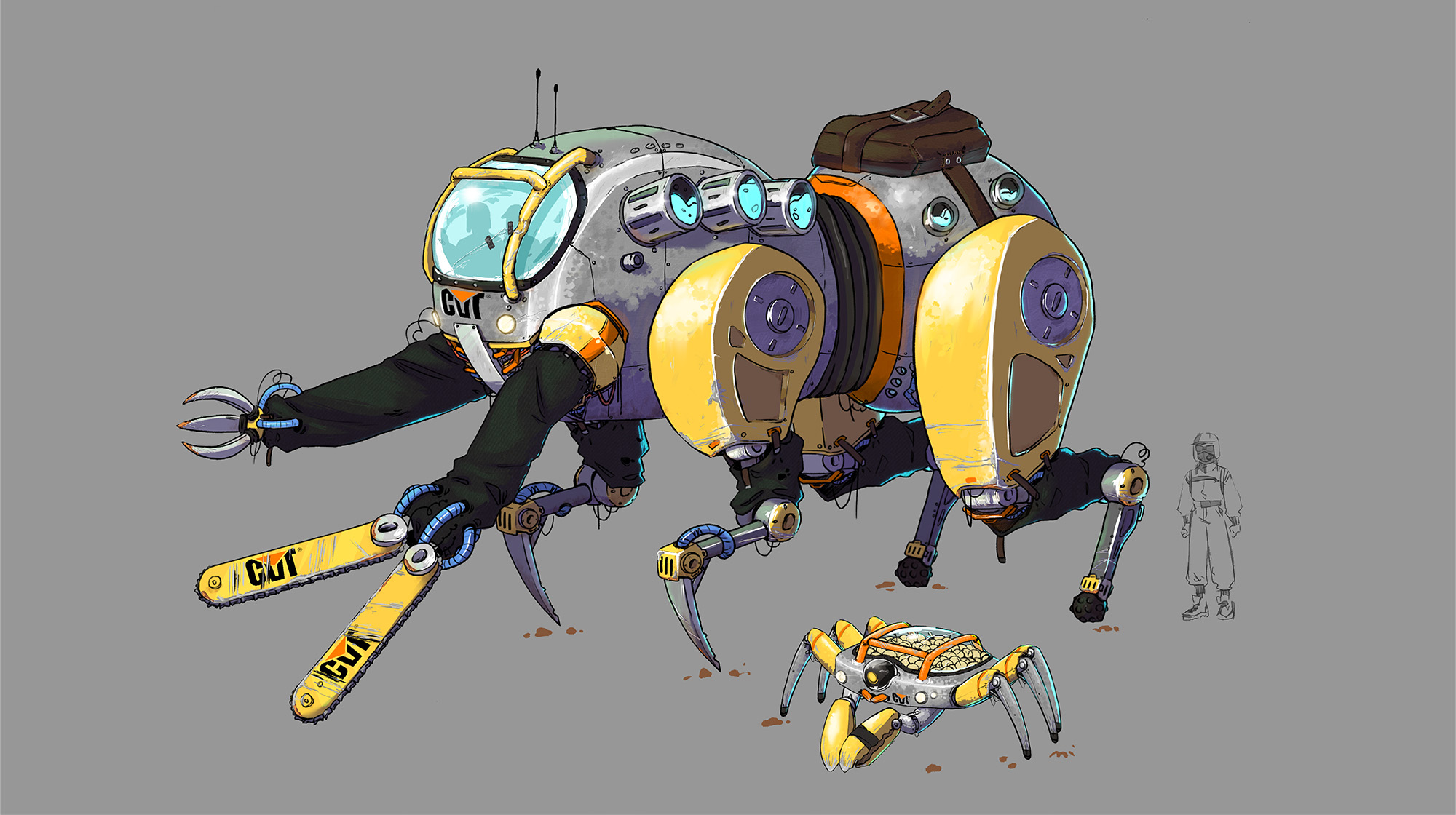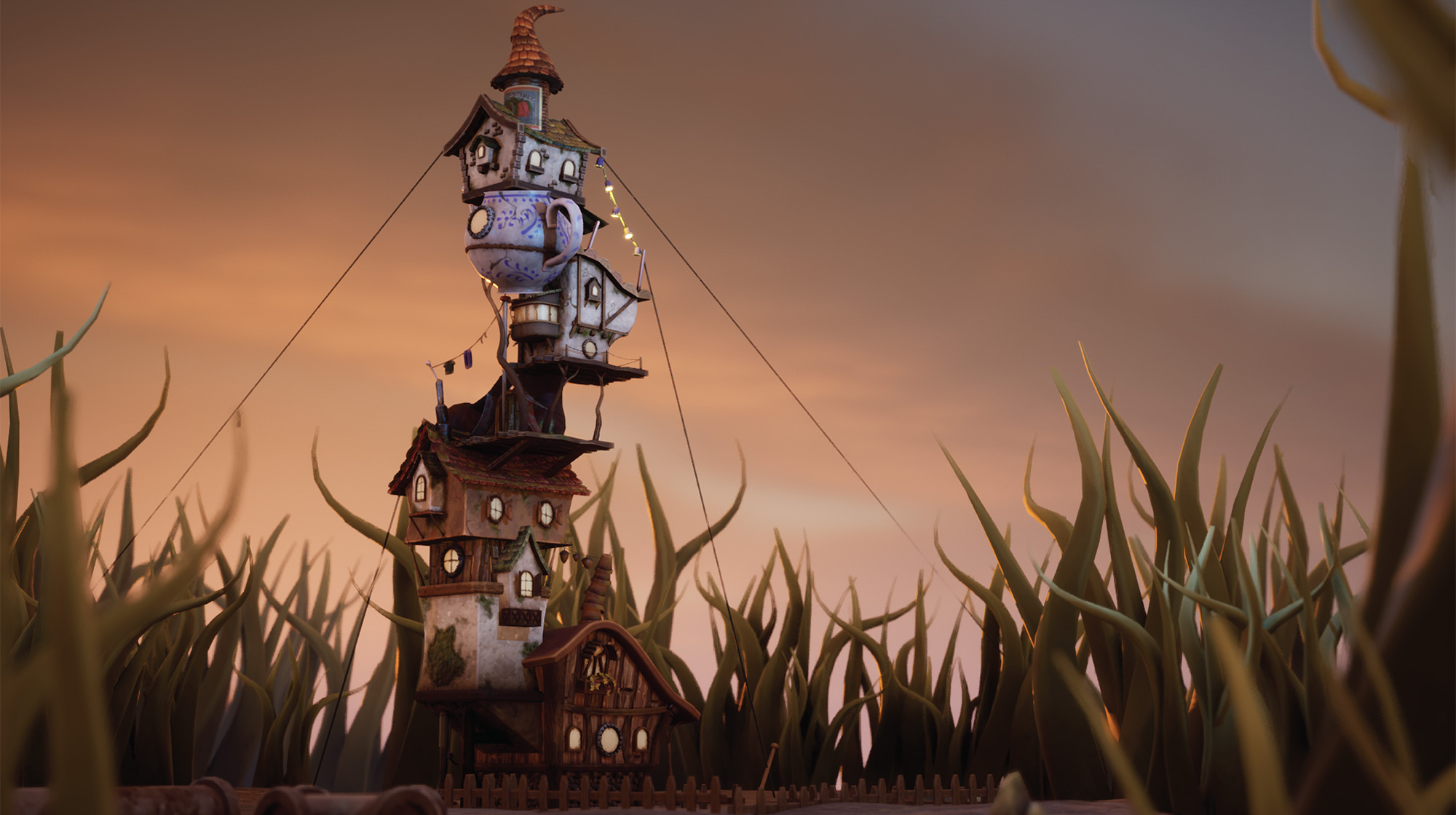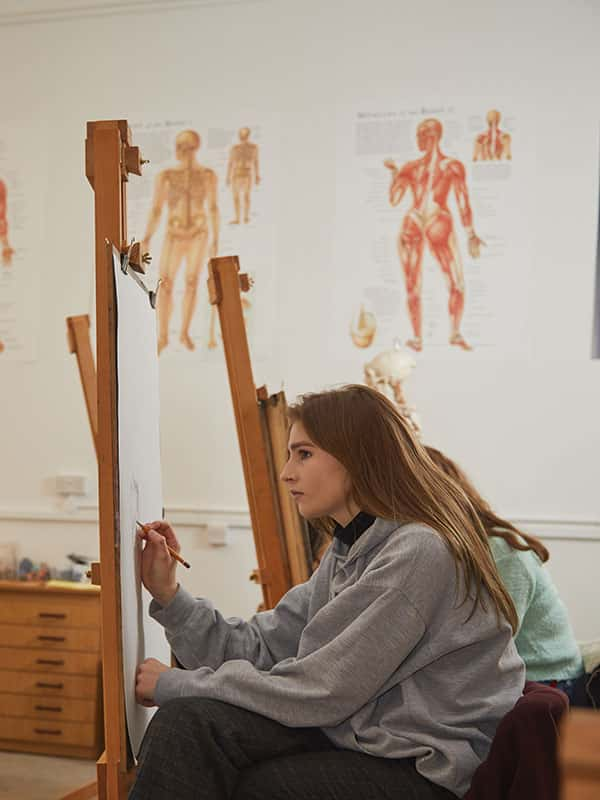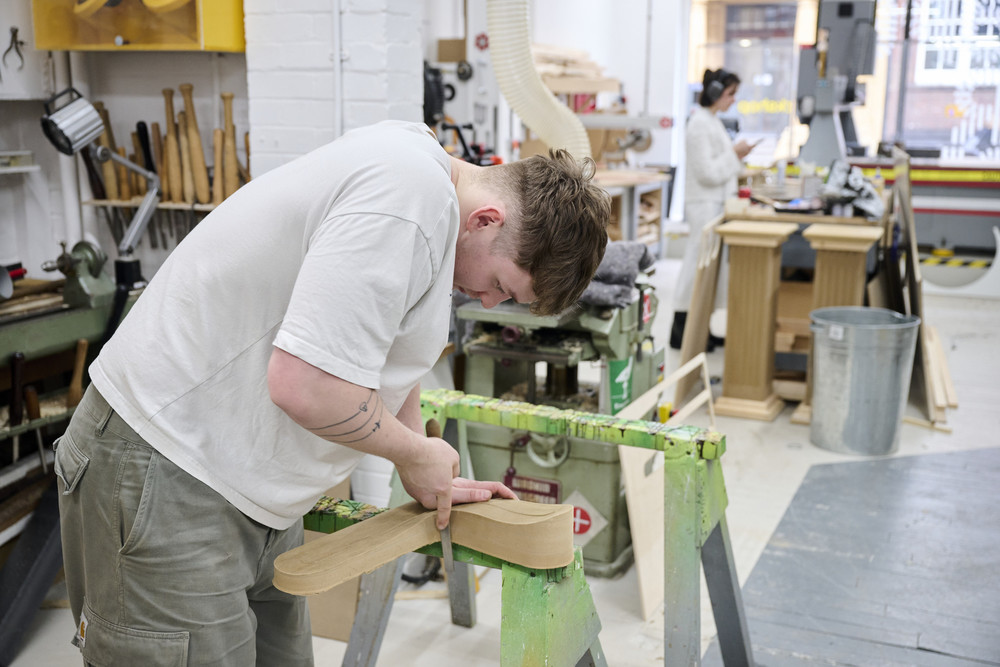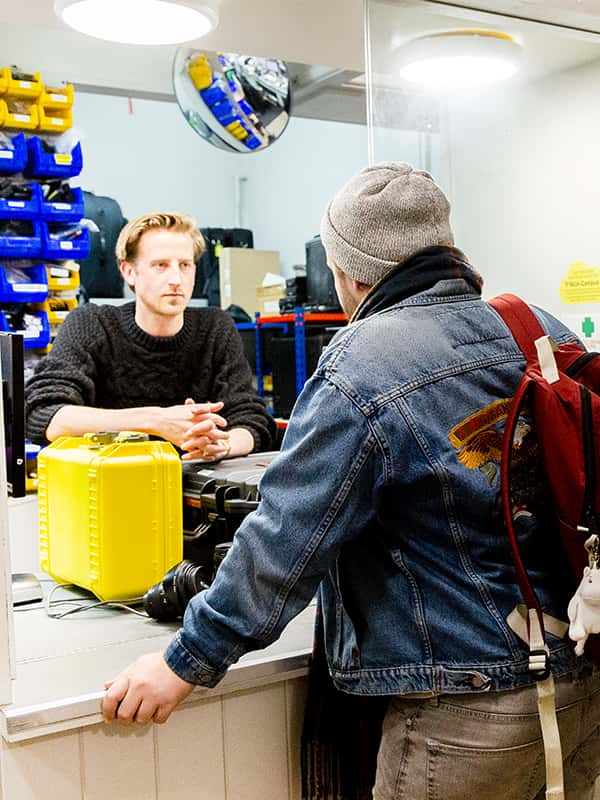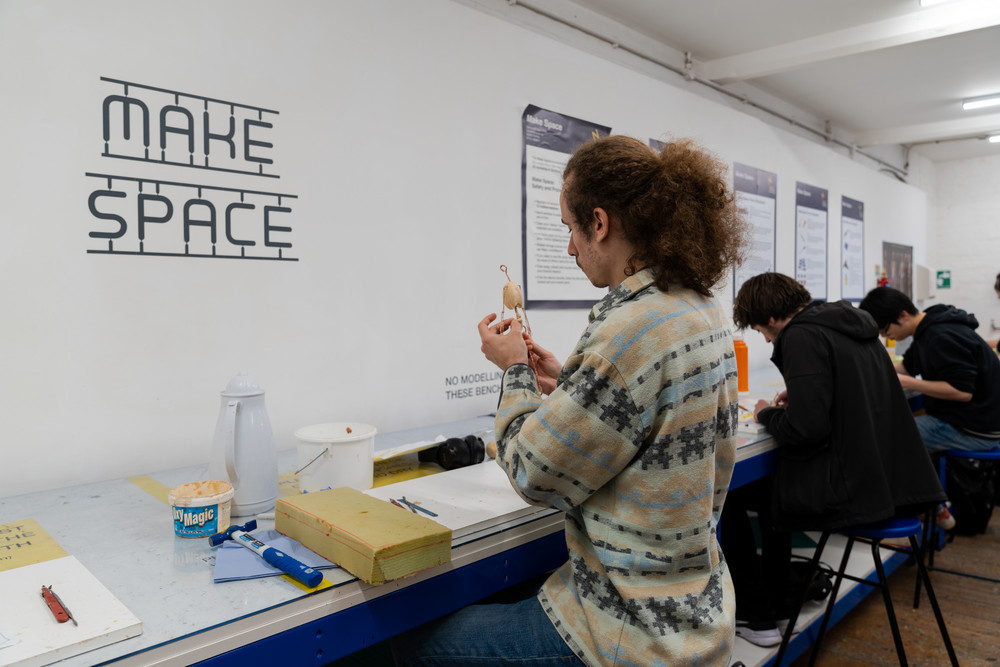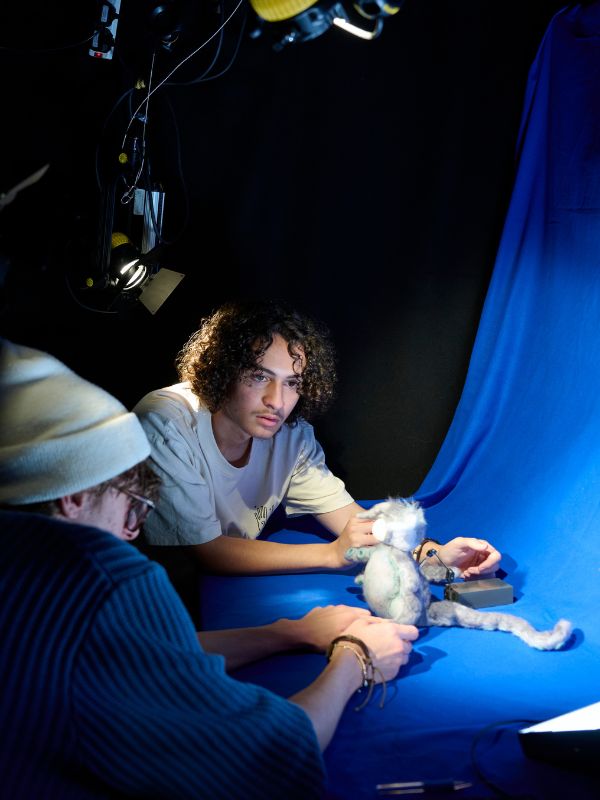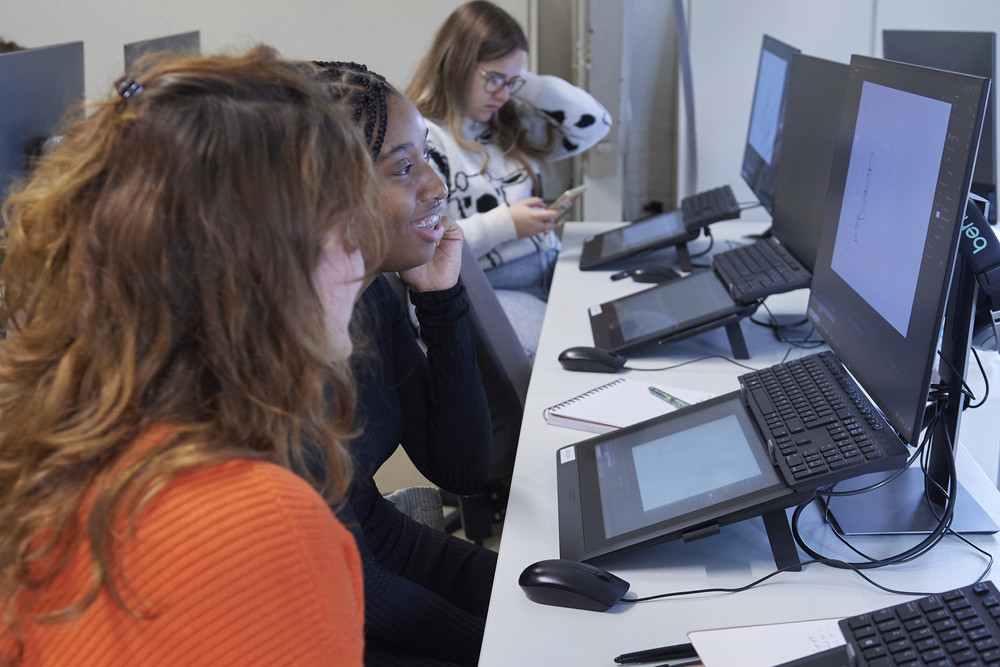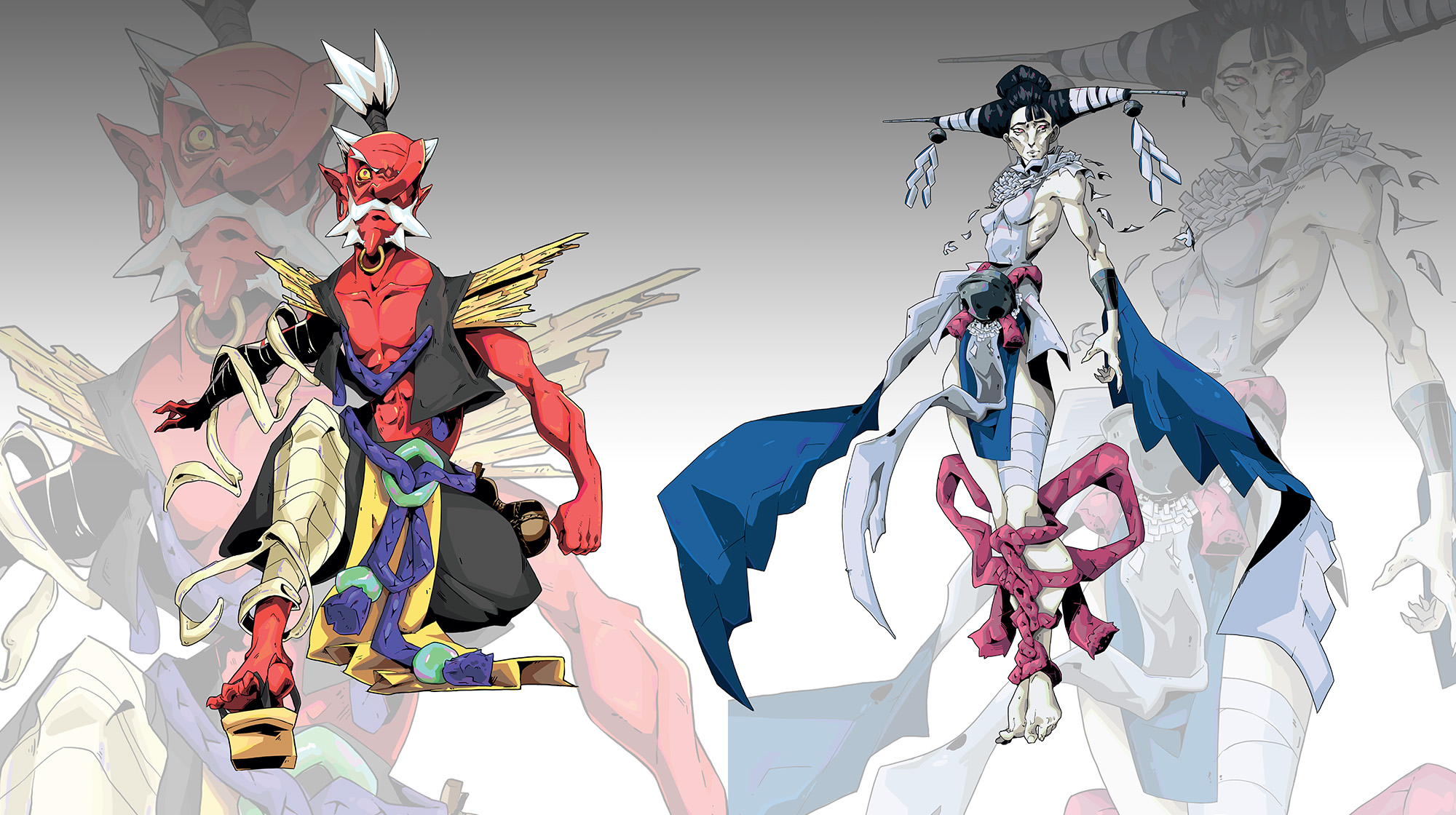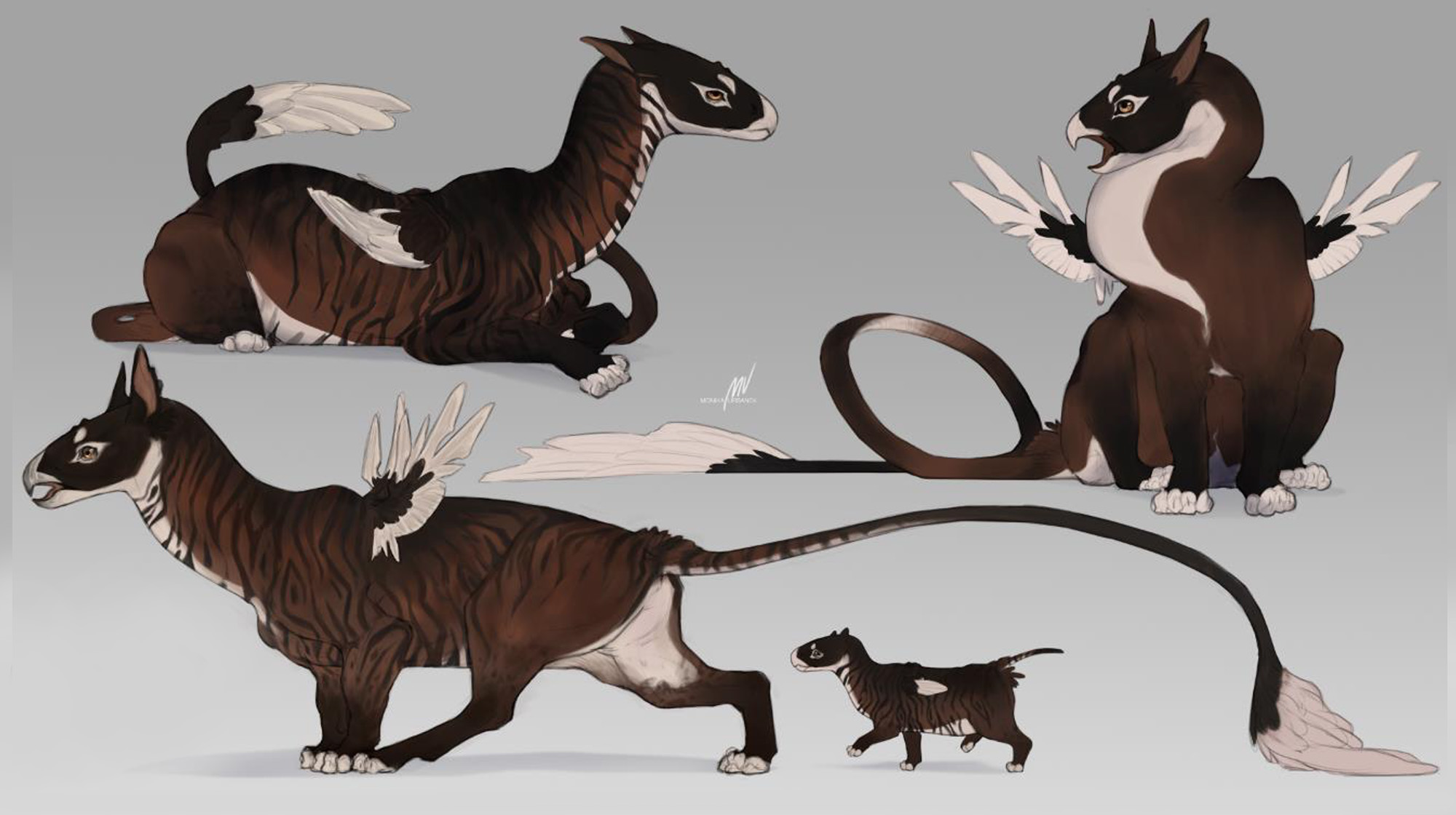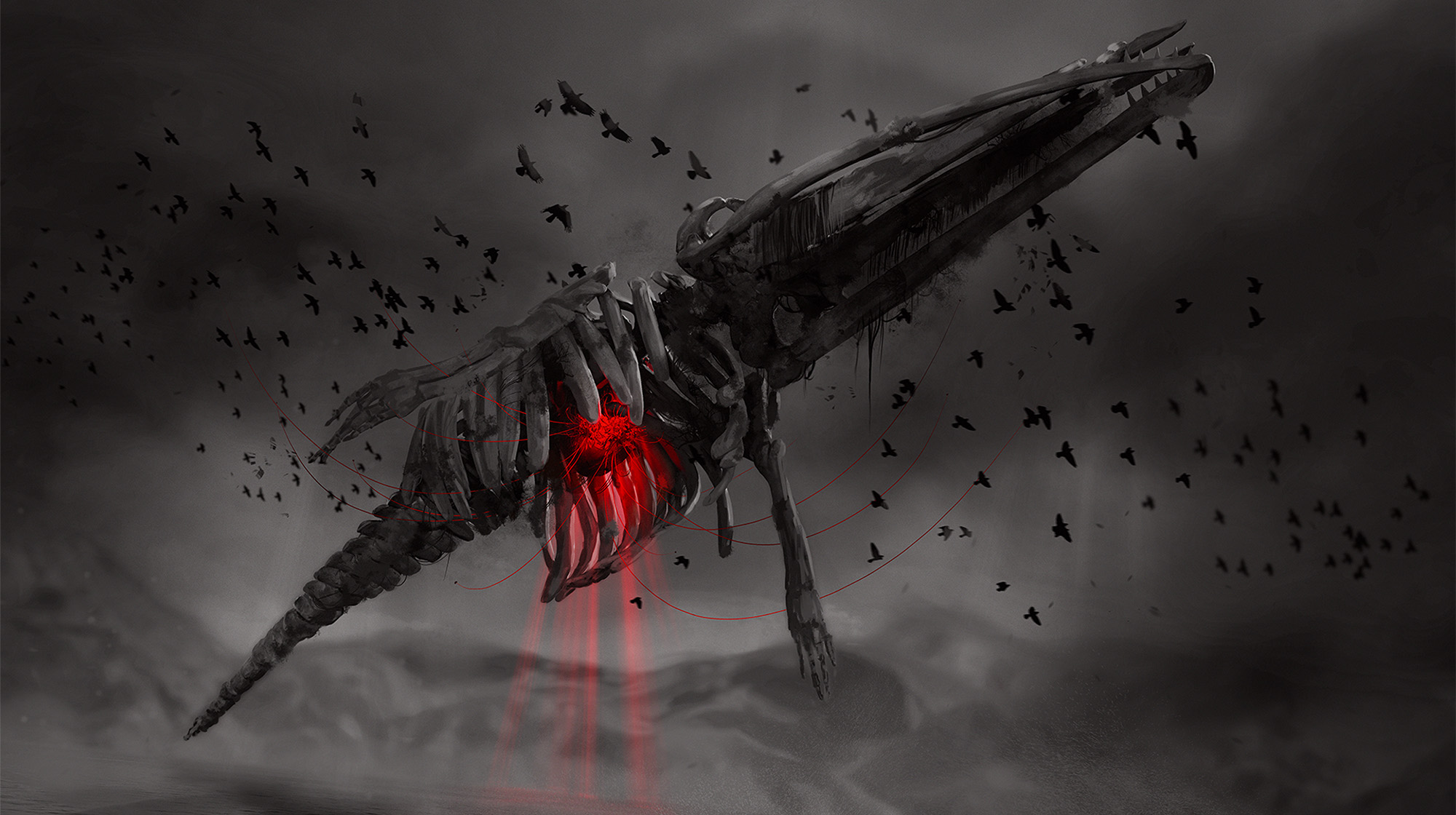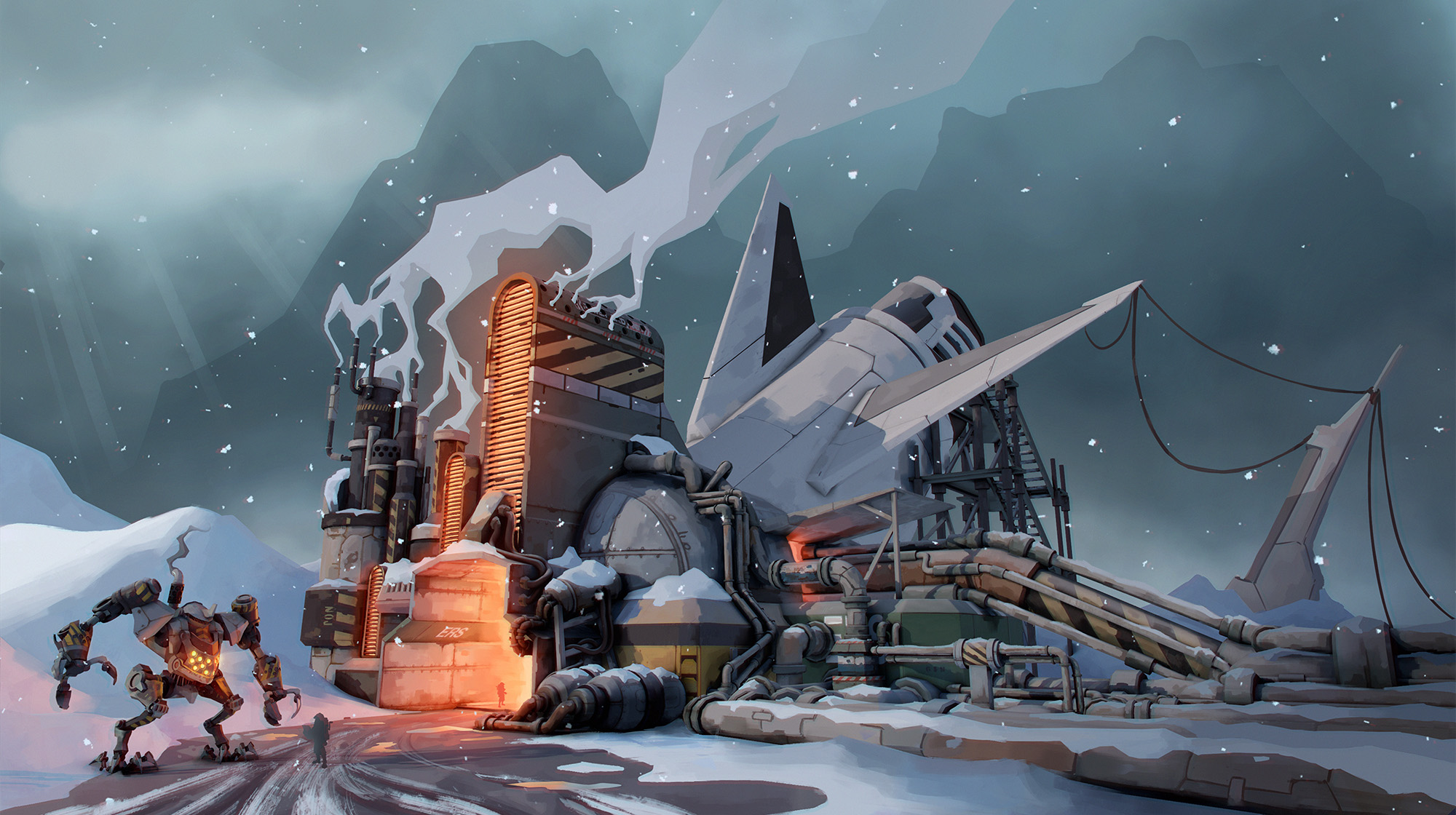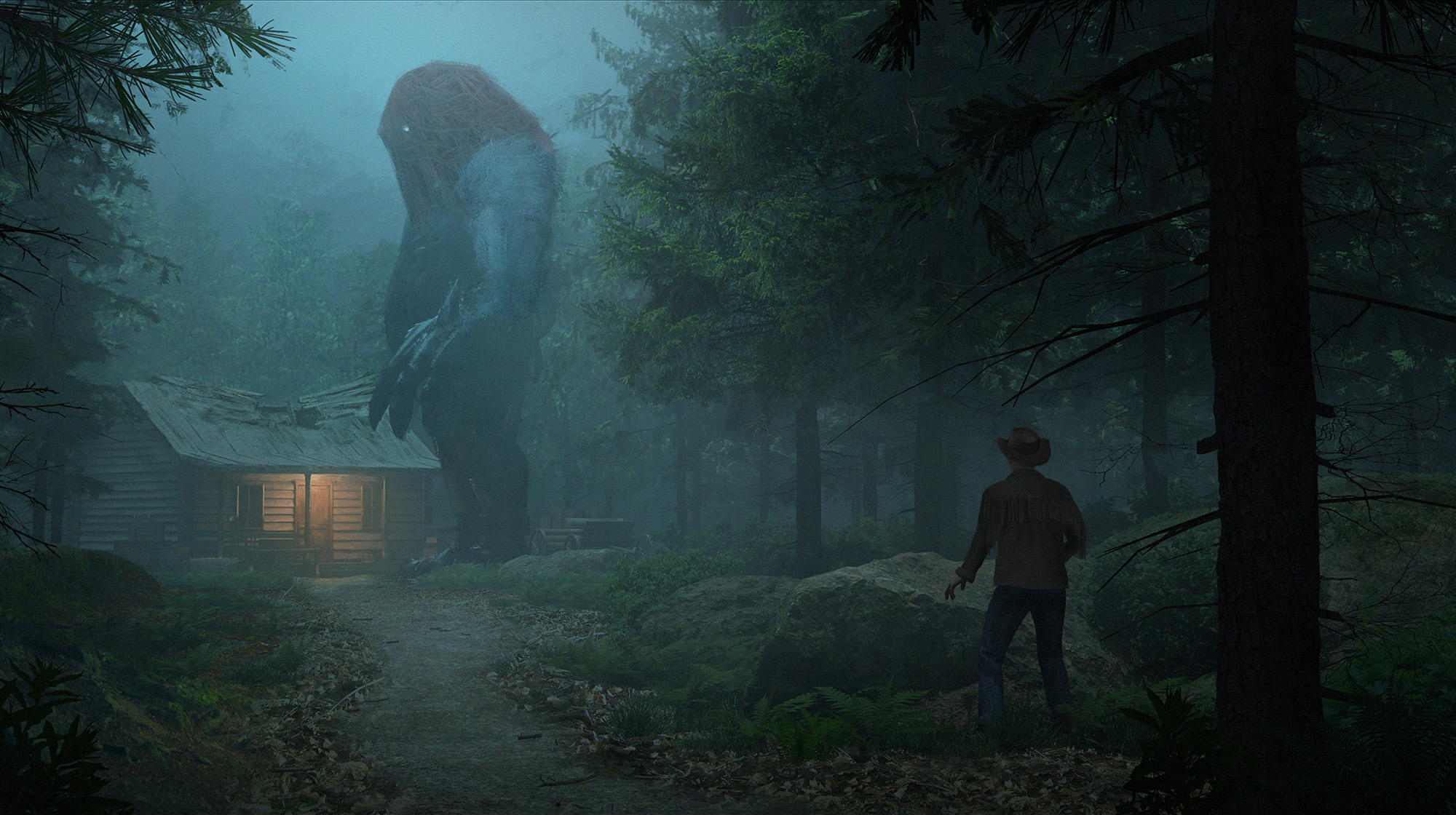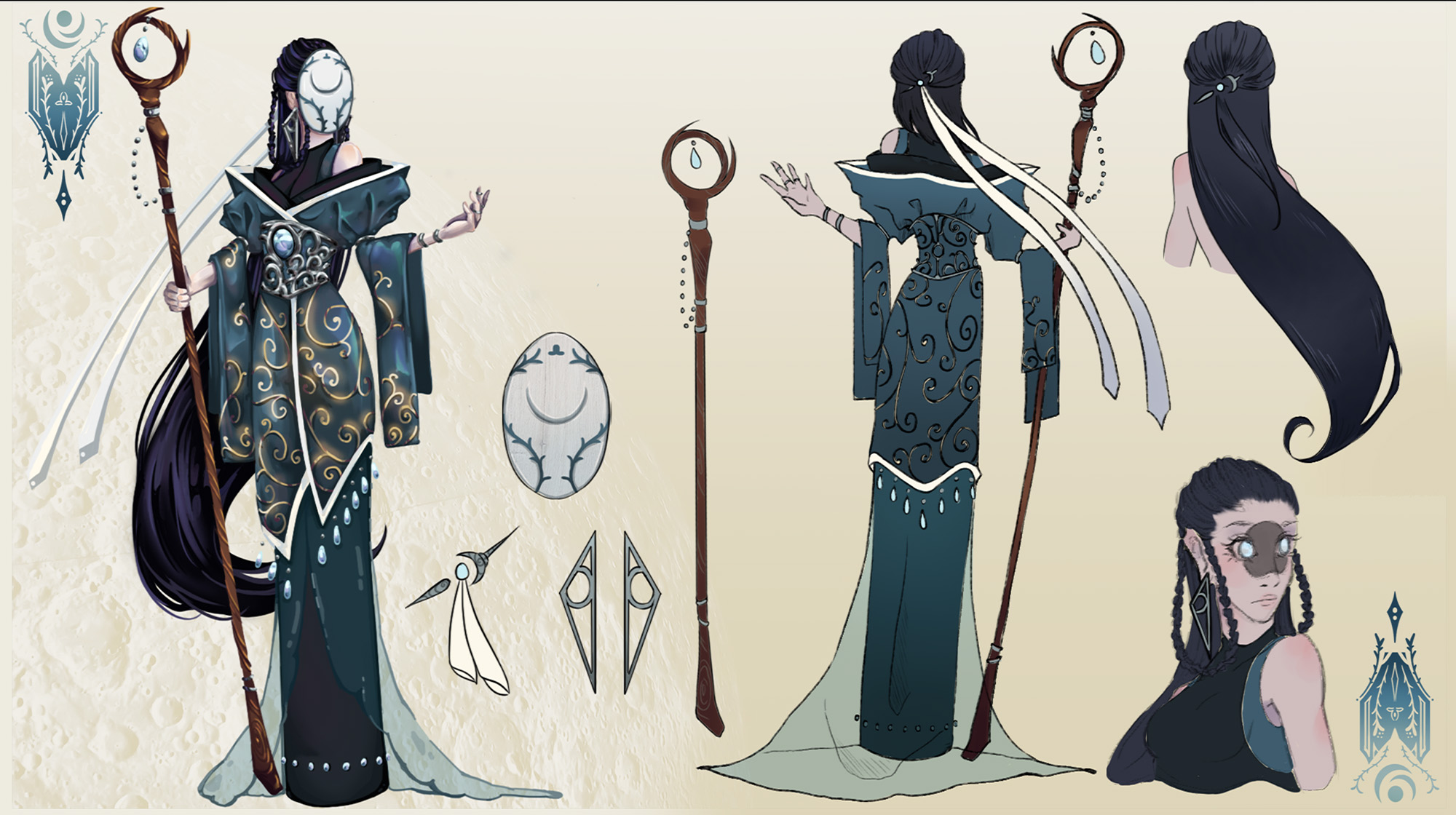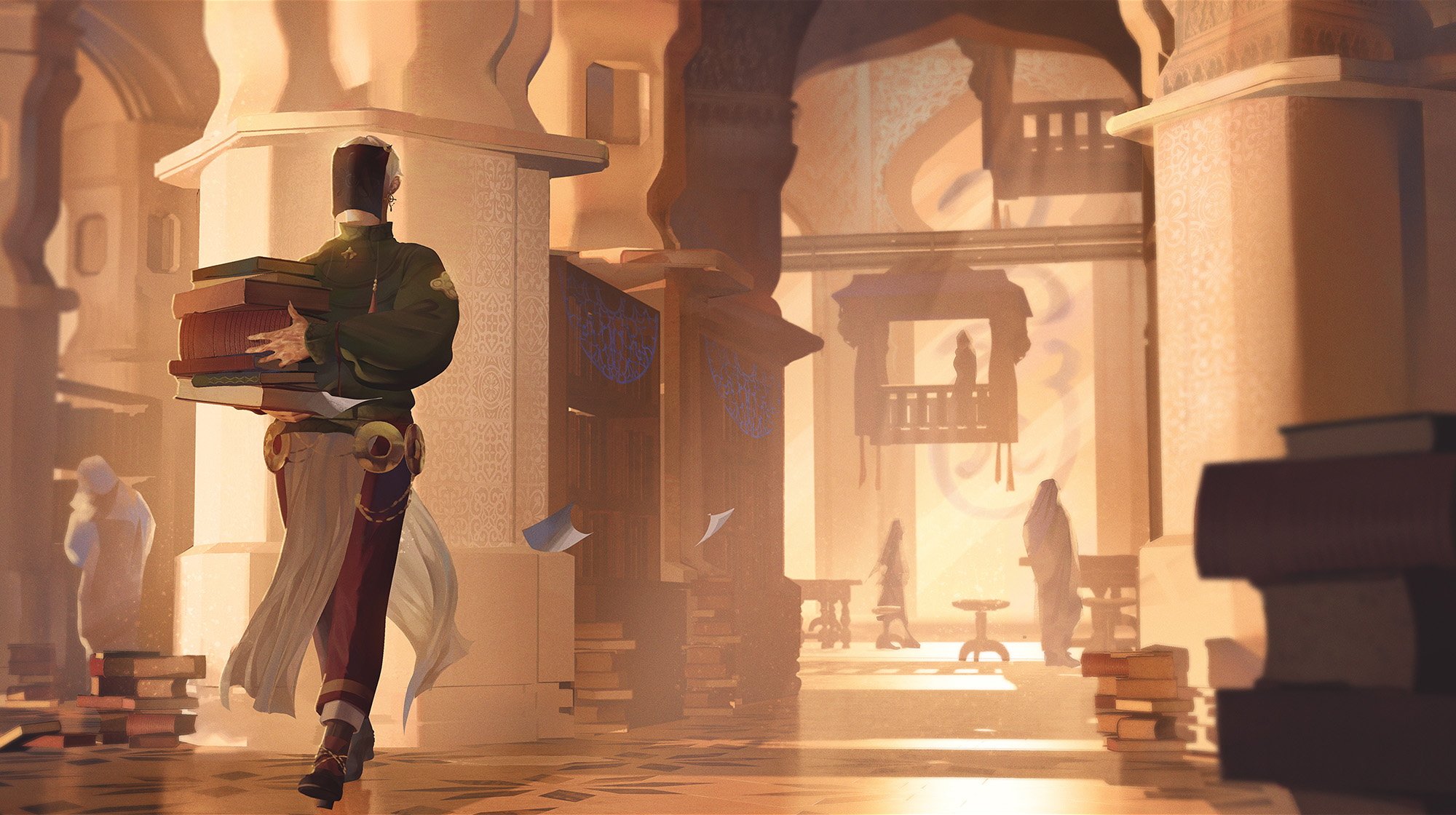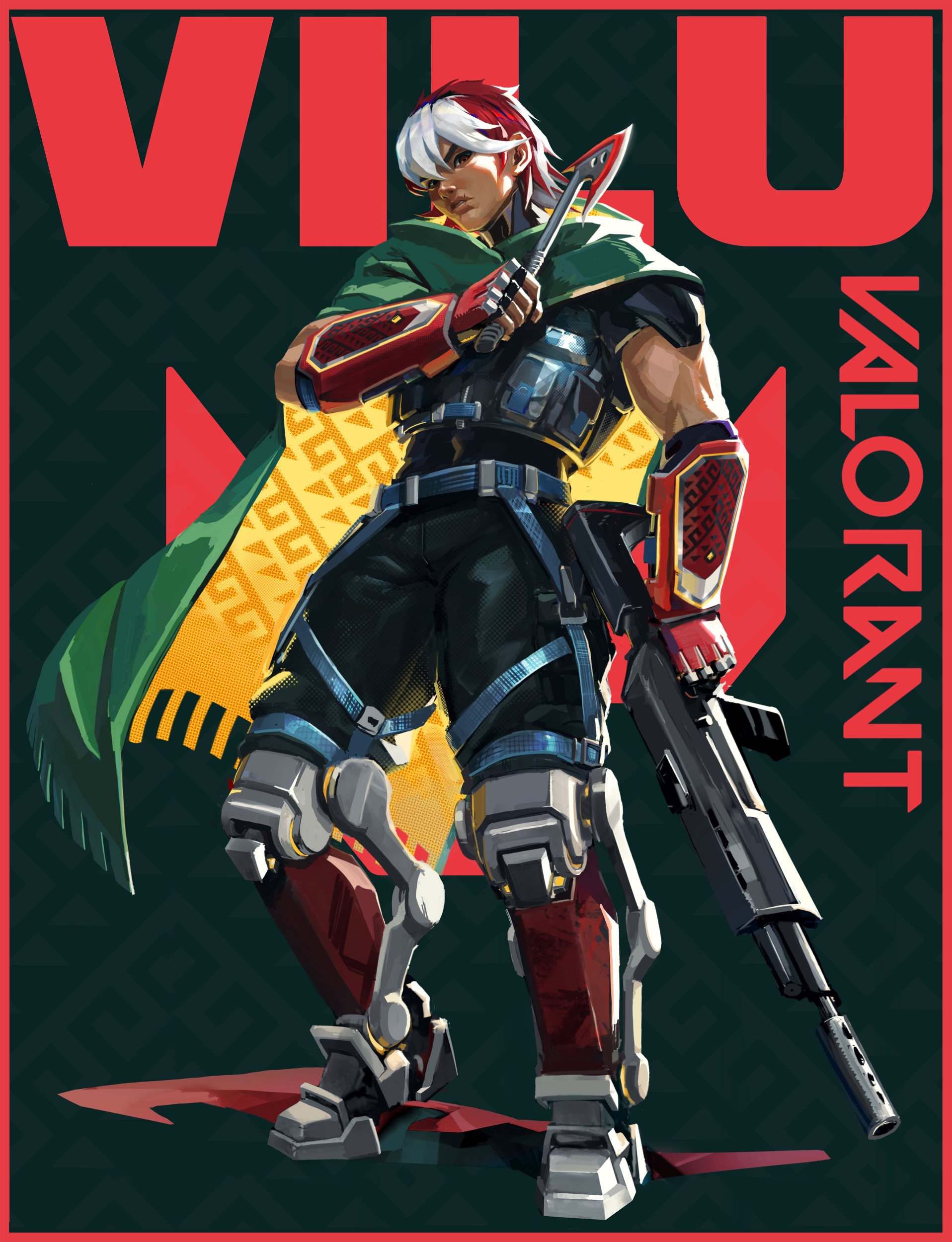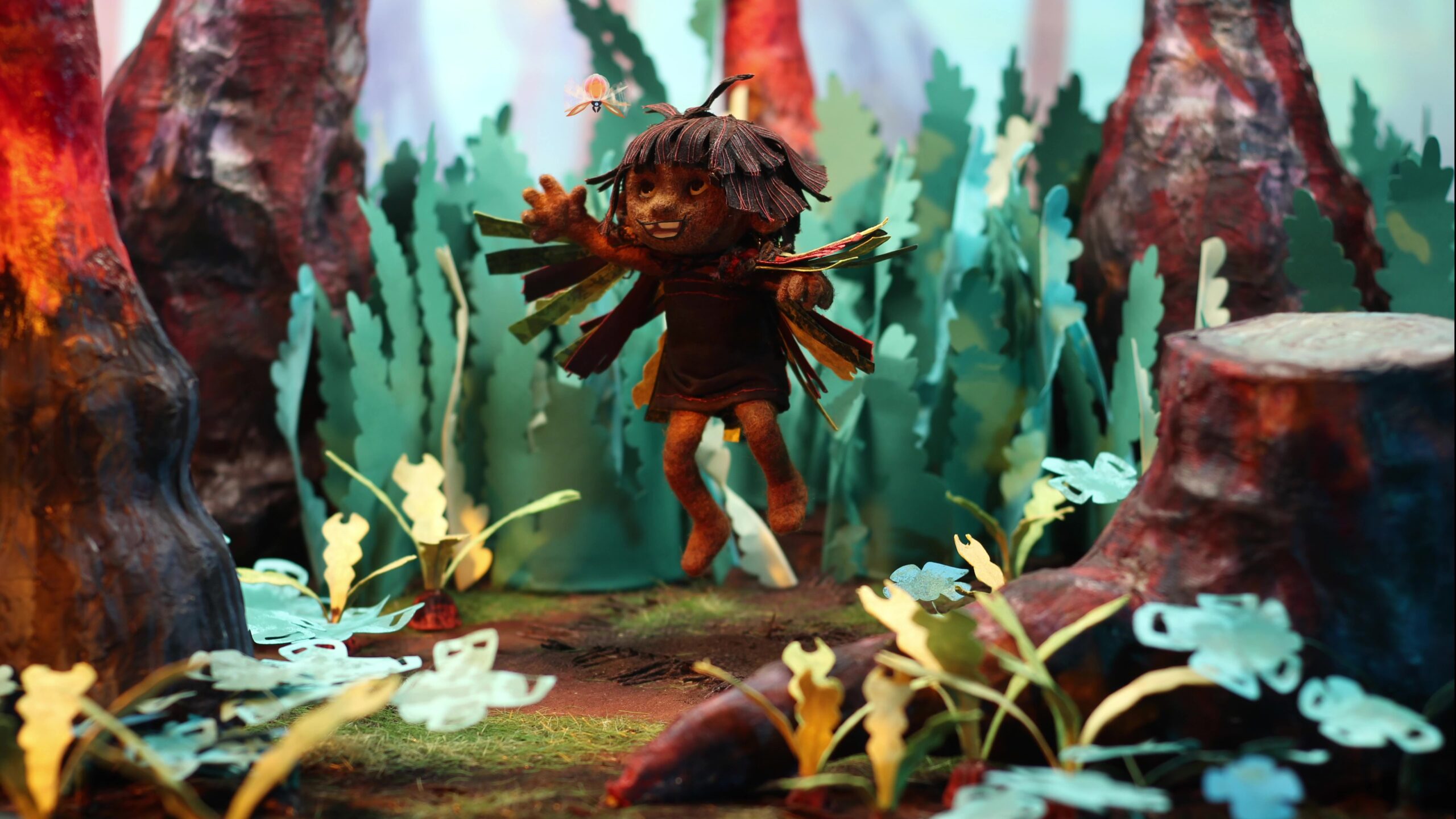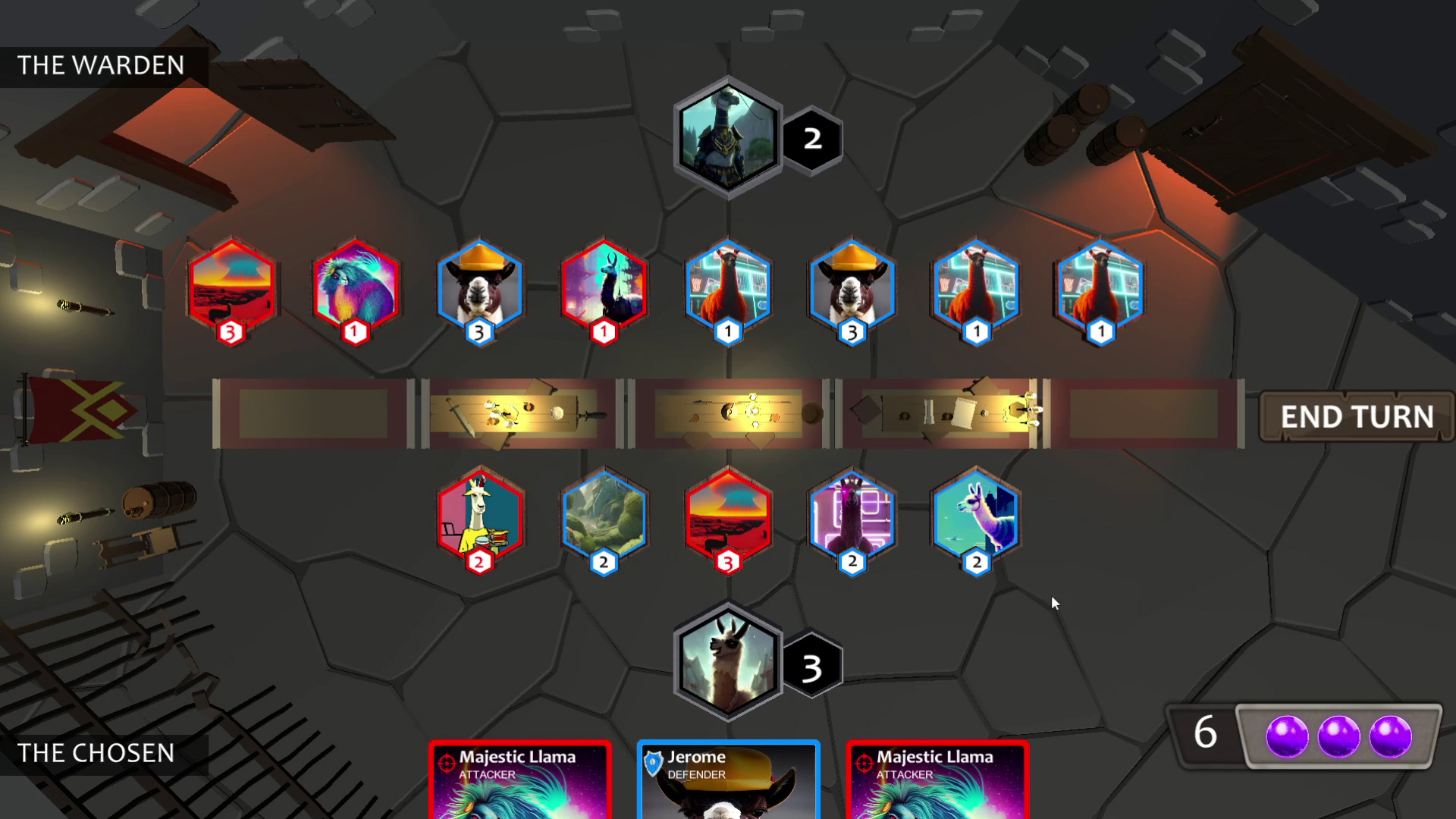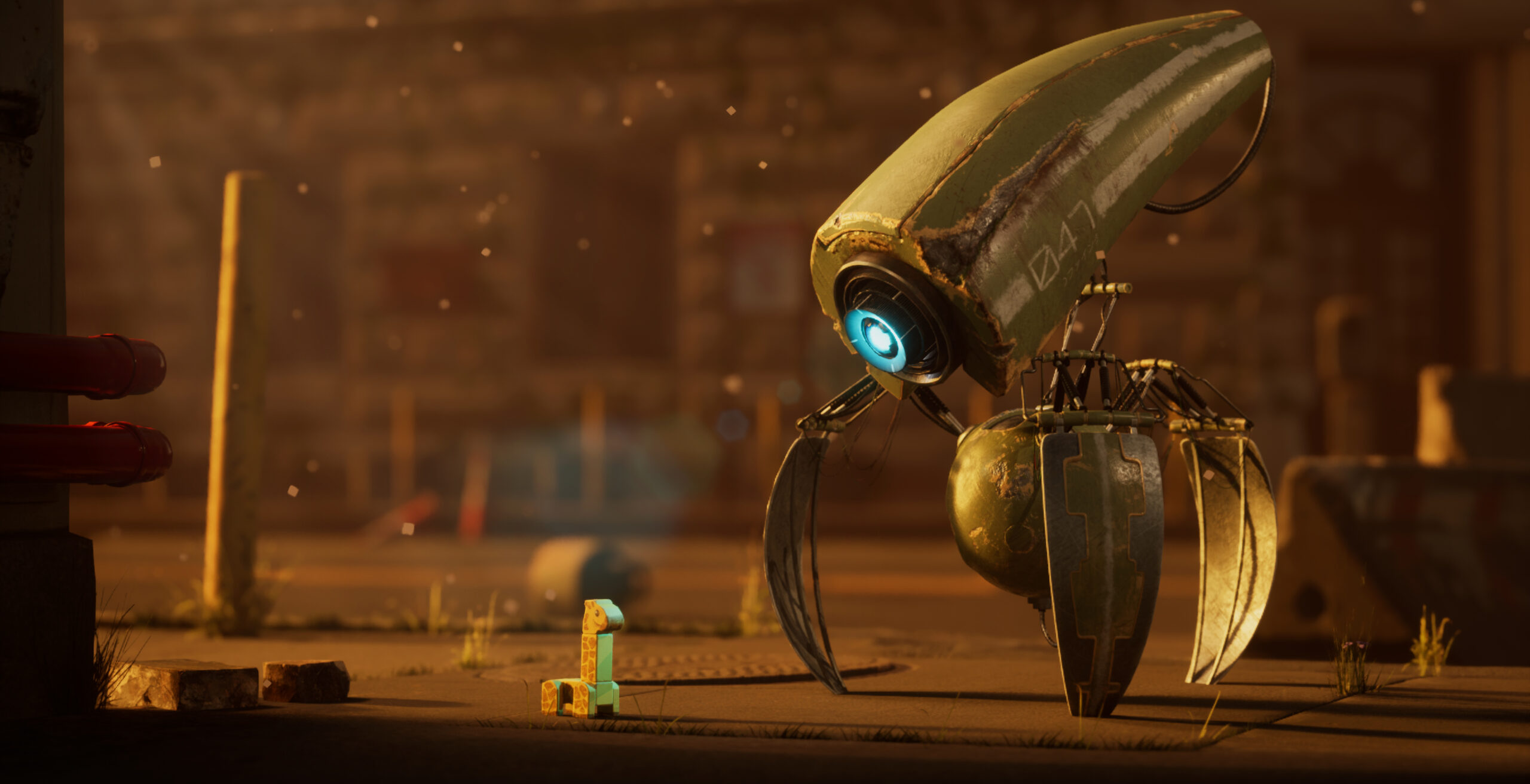
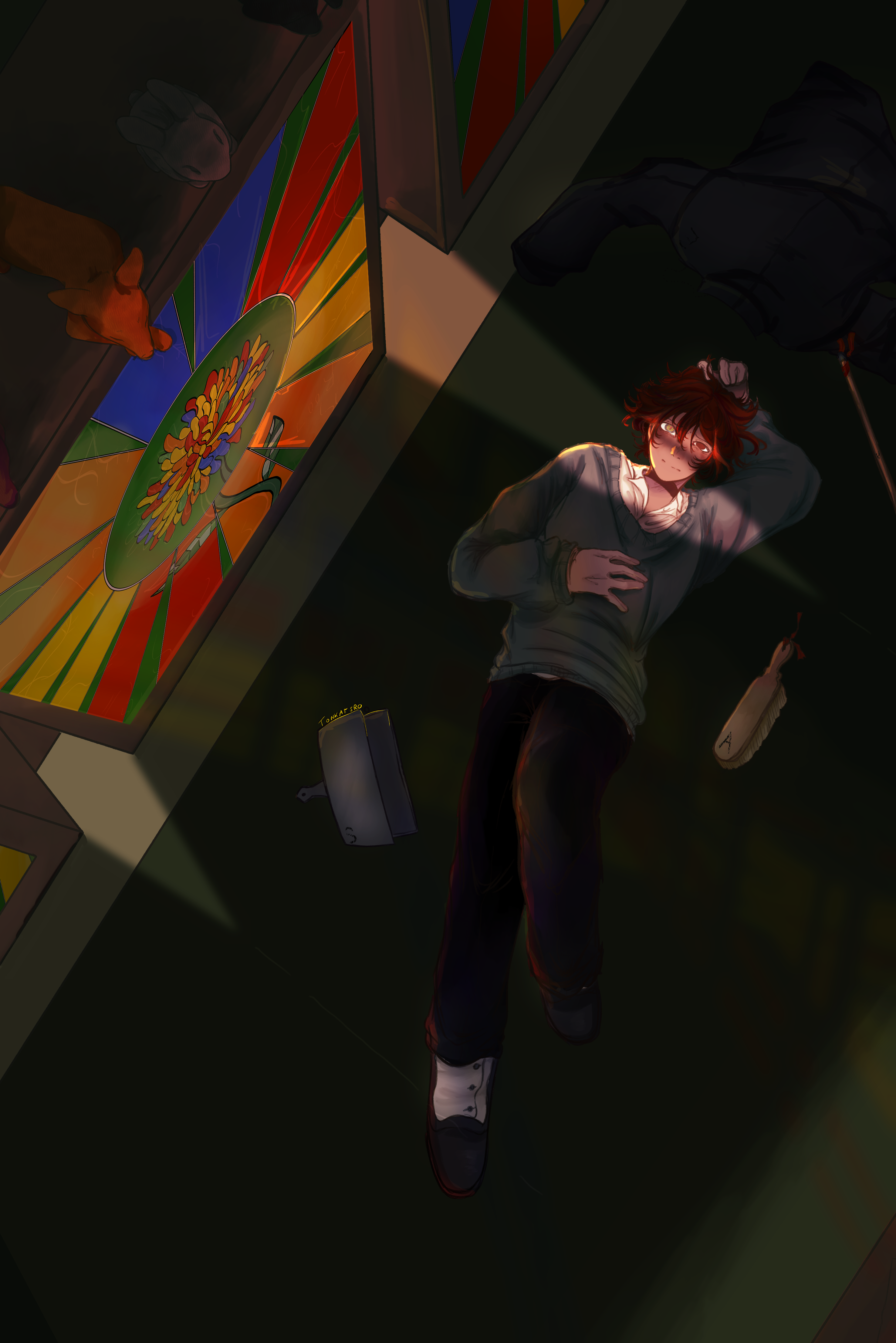

Games Art and Design BA (Hons)
Explore and develop your skills of current game studio pipelines and be part of a collaborative, supportive department.
-
Course Duration
3 or 4 Year options
-
Annual Fees
- Home (full-time) £9,790
- Overseas (full-time) £18,860
-
UCAS code
- WL21 (3 Year), W280 (4 Year)
- Institution code: N39
- How to Apply Request a prospectus
-
Course Start
September 2026
Our award-winning TIGA accredited BA (Hons) Games Art and Design has an international reputation for producing graduates who excel creatively and technically. In 2023 the Rookies ranked Norwich University of the Arts in its global top 30 – and placed us 7th for 3D Animation, 20th for Concept Art and Illustration and 29th for Game Design and Development in their global rankings. In addition, Norwich was awarded ‘Best Education Initiative’ at the TIGA Games Industry Awards 2025.
Our industry-led course follows a T-shaped learning model where you specialise in your chosen field yet crucially gain awareness of important industry pipeline processes that cover games development, art, and design to level up your knowledge and experience as a creative, opening a wealth of graduate employability options.
You will design and create characters, props, environments and vehicles using 2D and 3D content creation software for a range of platforms, including console, web, mobile, computer, augmented and virtual reality. You’ll approach design and content creation with a focus on originality, supported by research into historical, cultural and broader creative influences, helping you become a well-rounded and inventive artist and games designer.
Students and graduates have worked on major ‘AAA’ titles such as Star Wars Jedi: Survivor, Red Dead Redemption 2, Batman: Arkham Asylum and Sea of Thieves, while others have set up their own successful independent studios.
Recent awards:
Four students have been awarded Outstanding in the 2024 TIGA Graduate of the Year
Accreditations
- Loading…
Why study with us
-
Study the fundamentals of game design, industry-leading Unreal Engine, and be introduced to formative theoretical concepts from contemporary academics and practitioners.
-
Design and create characters, props, environments and vehicles using 2D and 3D content creation software.
-
Develop your skills across concept art, asset production, and indie development shaping your course journey with specialism support.
-
Learn how to use computational logic to generate interactivity in the creation of game prototypes.
-
Be involved in live briefs and collaborative projects such as games jams, both within Norwich and internationally where teams work together to build games from scratch under a deadline.
-
Collaborate with technical-minded BSc (Hons) Games Development students to inspire and elevate each other’s projects.
-
Engage in professional networking through our high-profile visiting speakers, or at major events like Develop: Brighton, Women in Games, Ukie Conference and Norwich Games Festival.
Course Details
Integrated Foundation Year (optional)
Integrated Foundation Year
Our Integrated Foundation Year is designed to equip students with the necessary skills, knowledge and confidence to thrive in their chosen degree subject. The course provides a comprehensive introduction to various disciplines, blending critical thinking and creative problem-solving with practical hands-on experience. This year serves as a bridge to undergraduate studies, allowing students to explore their interests within a supportive and inspiring environment, while familiarising themselves with the campus, workshops, and tutors.
Year 1
Core Units
Creative Learning (40 credits)
This unit will introduce you to the fundamental principles of ideation and iteration in game development through concept art. You’ll be introduced to industry-standard pipeline processes and fundamental iterative design techniques, which is crucial for developing unique ideas. You’ll be introduced to 2D digital painting techniques such as lighting, composition, colour, texture, narrative, mood and intent. Emphasising research, communication, and critical thinking skills important to a creative practice, seminar discussion and lectures will invite you to begin to interrogate and understand the wider contexts within which games sit and introduce you to the critical and creative debate.
40 credits
Explore and Experiment (80 credits)
In this unit, you will explore and experiment with techniques, materials, media, and ideas. Building on the introduction to game development pipelines in your concept art project, you’ll explore 3D modelling techniques and indie game development process. Project briefs enable you to explore storytelling, form, pacing, play, presentation and audience interaction. You’ll expand your knowledge of the principles and technical skills required to create 2D and 3D content for video games and other creative industries. You’ll build on established iterative design processes by applying them to 3D modelling and asset production, and games design and development. You’ll also study professional developers and their product standards to contextualise and understand current market trends and platform limitations. You will build your research skills to support idea generation and development, review and understand the wider games industry, and incorporate games studies into your studio practice.
80 credits
Core Projects
Wayfinding Week
The first week of each academic year is called Wayfinding week. It’s an opportunity get your bearings, establish new connections and, after your first year at Norwich, re-establish old ones. Your course team will talk you through the year ahead and explain the expectations for the year. We’ll help you navigate new encounters and identify areas to focus on as you progress through your course.
Make it Manifest(o)
An important element of Wayfinding Week is taking part in our annual ‘Make it Manifest(o)’ project. Your course team will introduce the project in which we’ll ask you to consider your hopes and vision of the year ahead at Norwich and work with students in other year groups to bring your ideas to life. The project culminates in a celebratory display of work across the campus. The project will help you to develop your critical creativity through different approaches, concepts, and mediums. You’ll encounter diverse perspectives and build friendships and networks within our university community.
Interchange Week
Interchange weeks are opportunities to step away from your disciplinary studies and engage in projects, workshops, visits and talks that extend your knowledge and understanding of the world. Whether you learn a new skill or take part in a global challenge project with students from other courses, you will come away with new insights to take back to your course. Interchange is part of the schedule for all Norwich students with sessions held across and beyond the campus led by university staff, visiting lecturers and students.
Year 2
Core Units
Global Contexts (80 credits)
In your second year, you will progress your knowledge of 2D and 3D content creation in a range of specialist areas, including environment art, character art, asset production, and indie development, to name a few. You’ll be introduced to a broad range of professional software, such as Maya, Unreal Engine, Substance Painter, Photoshop, and ZBrush, as you start to specialise in an area of game art or games design and development that suits your career development plan. You’ll consider your work within the context of different audiences and a variety of platforms, including console, web, mobile, computer, and augmented and virtual reality. You’ll approach design and content creation with a focus on originality, experimenting with form and function of your creative practice to begin to push the boundaries of game making. You’ll research into historical, cultural and broader creative influences, and how they can be used to promote equality, diversity and inclusion, to add depth and complexity to your ideas.
80 credits
Collaboration (40 credits)
This unit will introduce you to the ways collaboration can help you focus and enhance your creative strengths by working with fellow students and our creative community. Working in mixed teams on a project, you will use your creative ideas to generate solutions to the challenge or brief, to mimic a games development studio. You’ll participate in an internal and external game jam brief to create fully working game prototypes. You’ll develop your understanding of game pipelines by developing your own games, utilising production methodologies such as Lean, Waterfall, and Agile, to navigate through production challenges. This unit aims to enhance your career development by fostering problem-solving, critical thinking, teamwork, listening, negotiation, and reflection skills.
40 credits
Core Projects
Wayfinding Week
The first week of each academic year is called Wayfinding week. It’s an opportunity get your bearings, establish new connections and, after your first year at Norwich, re-establish old ones. Your course team will talk you through the year ahead and explain the expectations for the year. We’ll help you navigate new encounters and identify areas to focus on as you progress through your course.
Make it Manifest(o)
An important element of Wayfinding Week is taking part in our annual ‘Make it Manifest(o)’ project. Your course team will introduce the project in which we’ll ask you to consider your hopes and vision of the year ahead at Norwich and work with students in other year groups to bring your ideas to life. The project culminates in a celebratory display of work across the campus. The project will help you to develop your critical creativity through different approaches, concepts, and mediums. You’ll encounter diverse perspectives and build friendships and networks within our university community.
Interchange Week
Interchange weeks are opportunities to step away from your disciplinary studies and engage in projects, workshops, visits and talks that extend your knowledge and understanding of the world. Whether you learn a new skill or take part in a global challenge project with students from other courses, you will come away with new insights to take back to your course. Interchange is part of the schedule for all Norwich students with sessions held across and beyond the campus led by university staff, visiting lecturers and students.
Diploma Year (optional)
Level 5 Diploma (120 credits)
Students have the opportunity to spend a year after the second of their degree (or the third year if studying for a degree with an Integrated Foundation Year) enhancing their employability options through a Level 5 Diploma. They can choose from courses designed to provide:
- opportunities to gain industry insight, developing employability skills through a series of supported experiences, expanding professional networks and building confidence in the workplace, or
- an introduction to creative computing, building an understanding of how coding skills can be used to advance and complement creative practice.
Final Year
Core Units
Research and Preparation (40 credits)
This is the first and shorter of the two units that make up your final year of study. You’ll define yourself as a game artist or designer. Working individually or in groups, you’ll undertake a number of projects using industry-standard digital tools to create stunning visual aesthetics or gameplay experiences that demonstrate your ability to critically evaluate and engage with important contemporary topics. The unit provides an opportunity for you to study a topic of your choice through a research project, enabling you to enter into the critical debate on an important area within games studies. Group and individual tutorials will provide stimulating and supportive sessions to help you develop your research ideas, and you’ll also be introduced to research methods and the principles of data summary and presentation.
40 credits
Resolution and Career Development (80 credits)
The unit will allow you to consolidate your learning from your degree programme into two final projects, bringing together ideas and techniques from throughout your study. These projects will be the focal point of your portfolio, showcasing skills and abilities to future employers or clients. Students will create a creative, industry-standard and/or experimental work demonstrating their practical and theoretical skills in their particular field or specialism. You’ll have the opportunity to display your final year project as part of our degree show, Grad Fest, which allows you to showcase your work to our network of industry professionals and prospective employers.
80 credits
Core Projects
Wayfinding Week
The first week of each academic year is called Wayfinding week. It’s an opportunity get your bearings, establish new connections and, after your first year at Norwich, re-establish old ones. Your course team will talk you through the year ahead and explain the expectations for the year. We’ll help you navigate new encounters and identify areas to focus on as you progress through your course.
Make it Manifest(o)
An important element of Wayfinding Week is taking part in our annual ‘Make it Manifest(o)’ project. Your course team will introduce the project in which we’ll ask you to consider your hopes and vision of the year ahead at Norwich and work with students in other year groups to bring your ideas to life. The project culminates in a celebratory display of work across the campus. The project will help you to develop your critical creativity through different approaches, concepts, and mediums. You’ll encounter diverse perspectives and build friendships and networks within our university community.
Interchange Week
Interchange weeks are opportunities to step away from your disciplinary studies and engage in projects, workshops, visits and talks that extend your knowledge and understanding of the world. Whether you learn a new skill or take part in a global challenge project with students from other courses, you will come away with new insights to take back to your course. Interchange is part of the schedule for all Norwich students with sessions held across and beyond the campus led by university staff, visiting lecturers and students.
Download course specifications
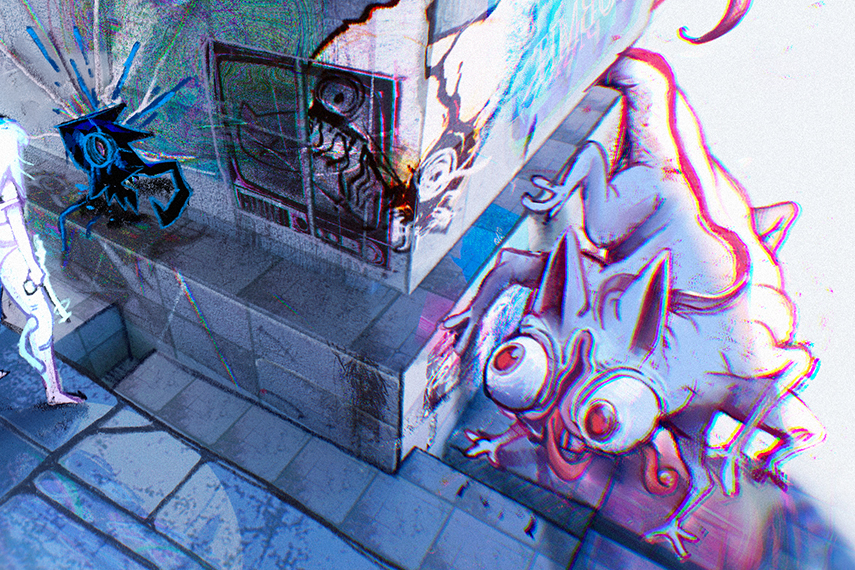
Learning and teaching
This course is taught through a mixture of learning and teaching methods including:
-
Group briefings
-
Academic tutorials
-
Group tutorials
-
Workshops
-
Critiques (crits)
-
Seminars
-
Lectures
Assessment
Assessment for this course is entirely coursework-based, meaning there are no exams. Your progress will be evaluated through the projects and assignments you complete for each unit. Throughout the year, you’ll receive ongoing feedback to help you refine your work and develop your skills. To support your learning and ensure you achieve the course outcomes, we use a variety of assessment methods, including:
- Finished pieces of work
- Presentations
- Written work
- Your research
- A reflective journal
Some of the people you’ll be working with
- Showing 1-8 of 12 results
-
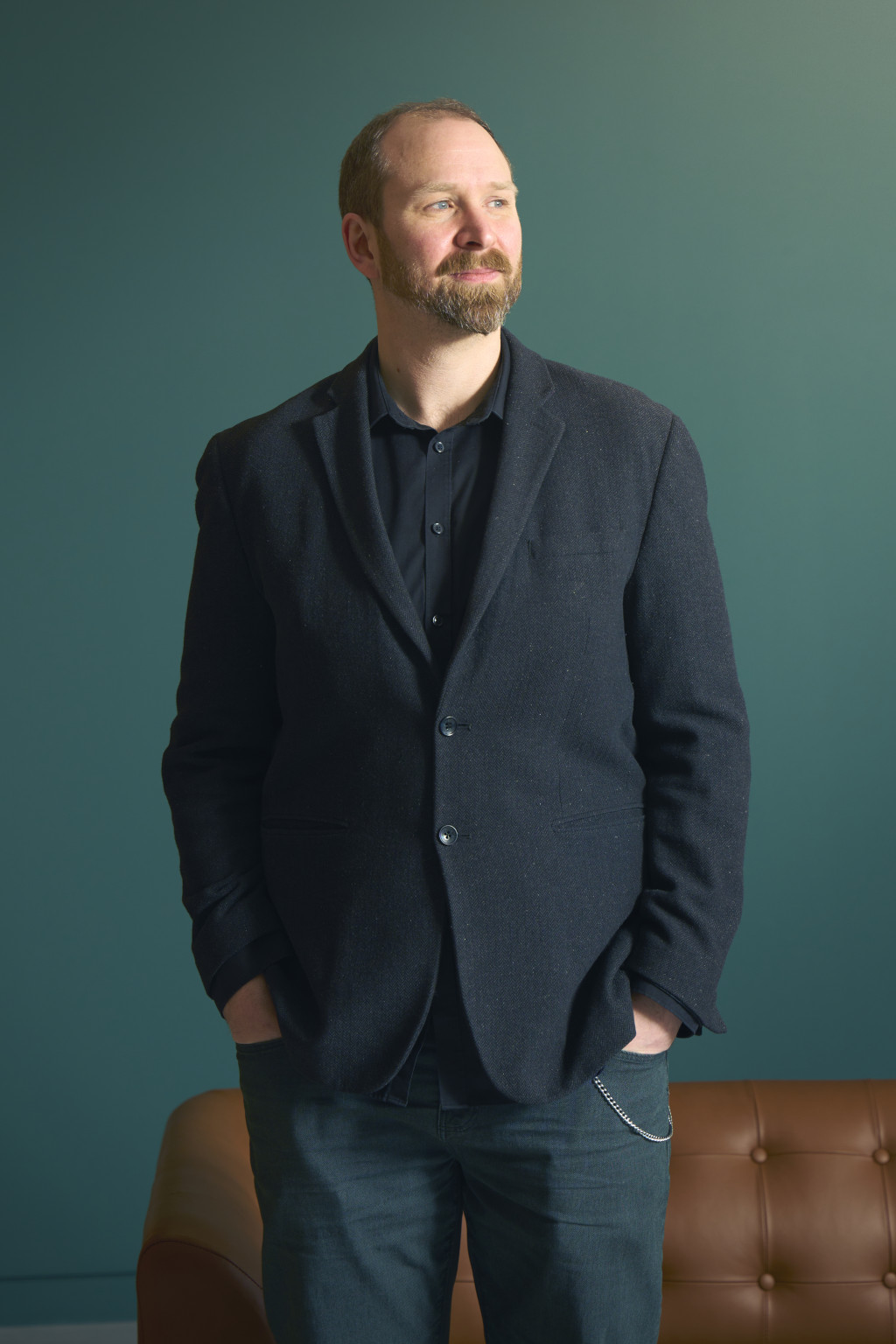
Mark Wickham
Director of Computer Arts and Technology
-
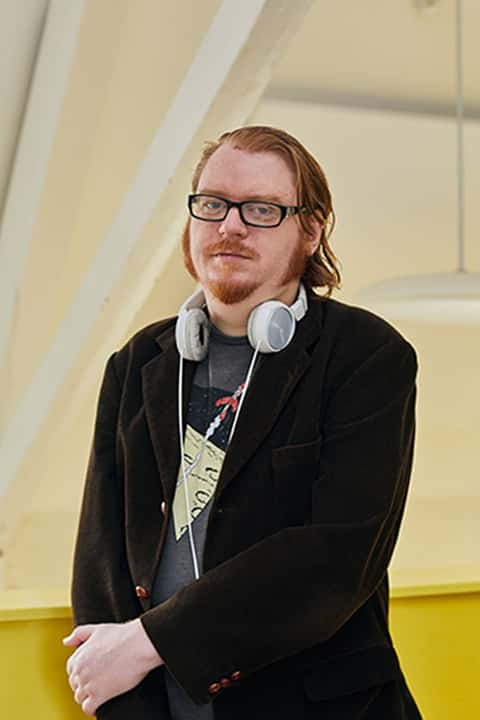
Dr Dean Bowman
Senior Lecturer and Associate Lecturer
-
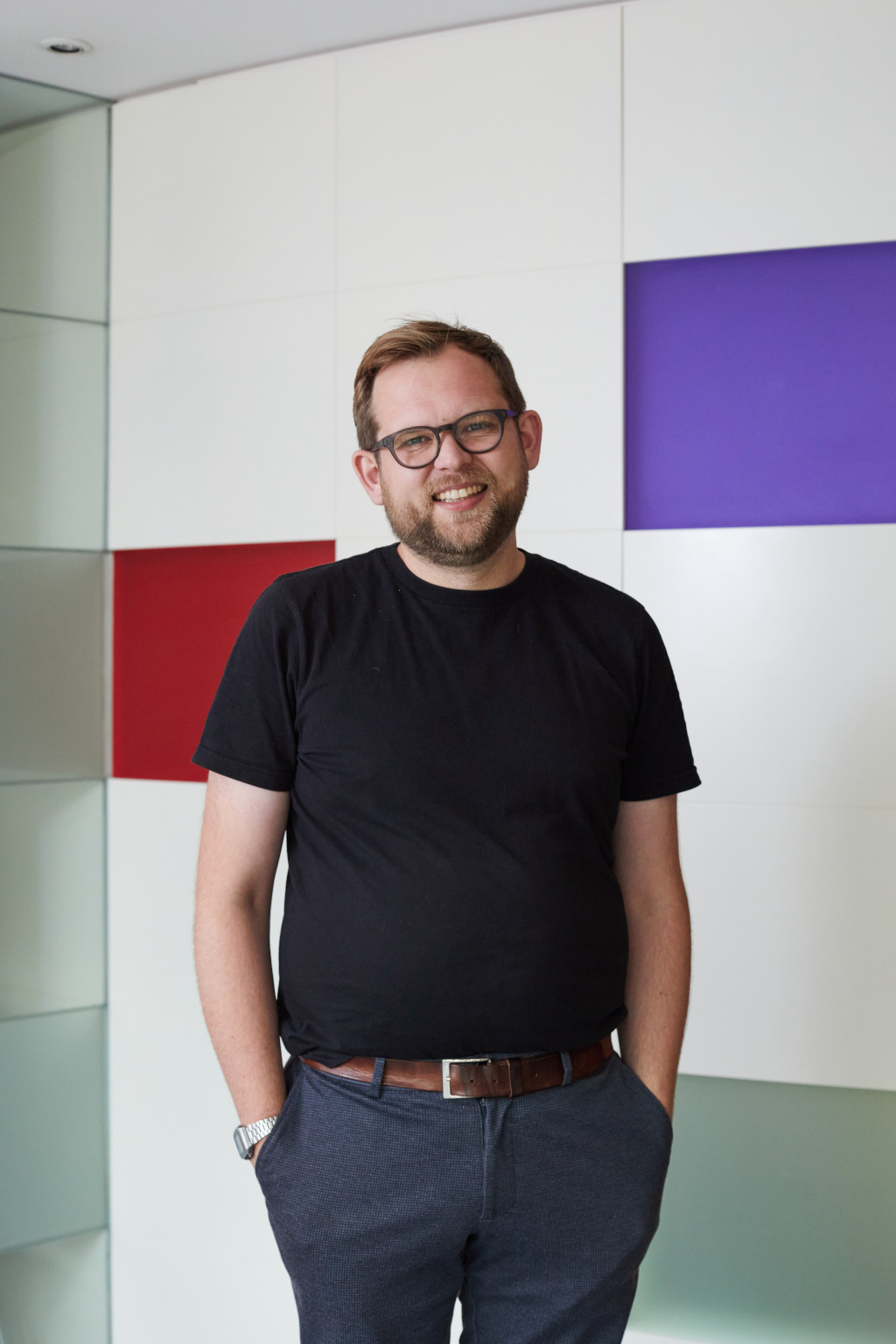
Jake Montanarini
Course Leader, Games
-
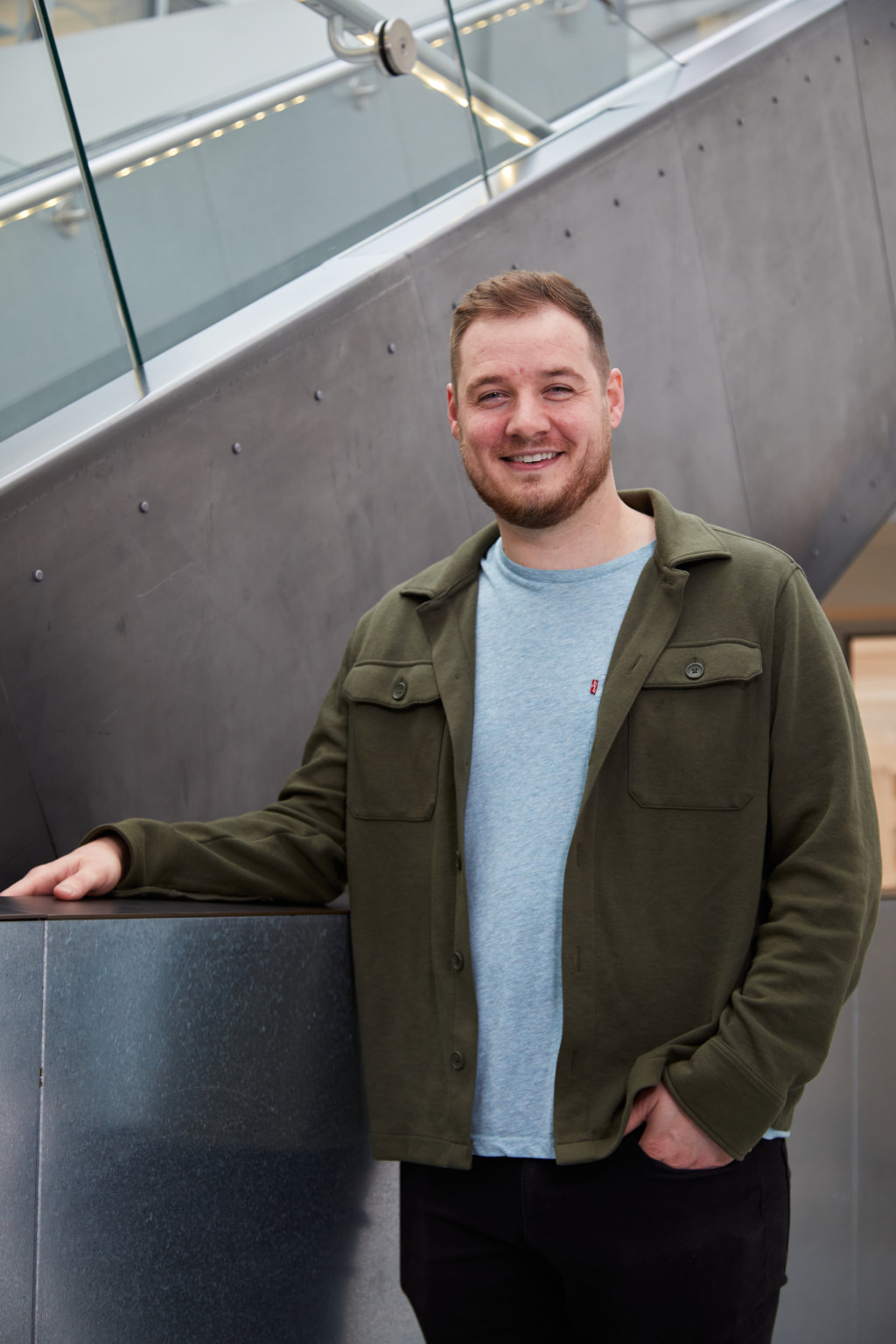
Christopher Middleton-Bolch
Senior Lecturer
-
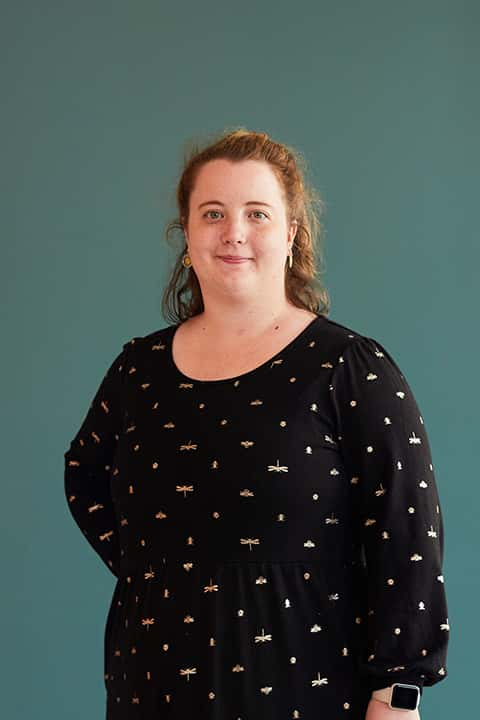
Hannah Reslan-Bhardwaj
Lecturer
-
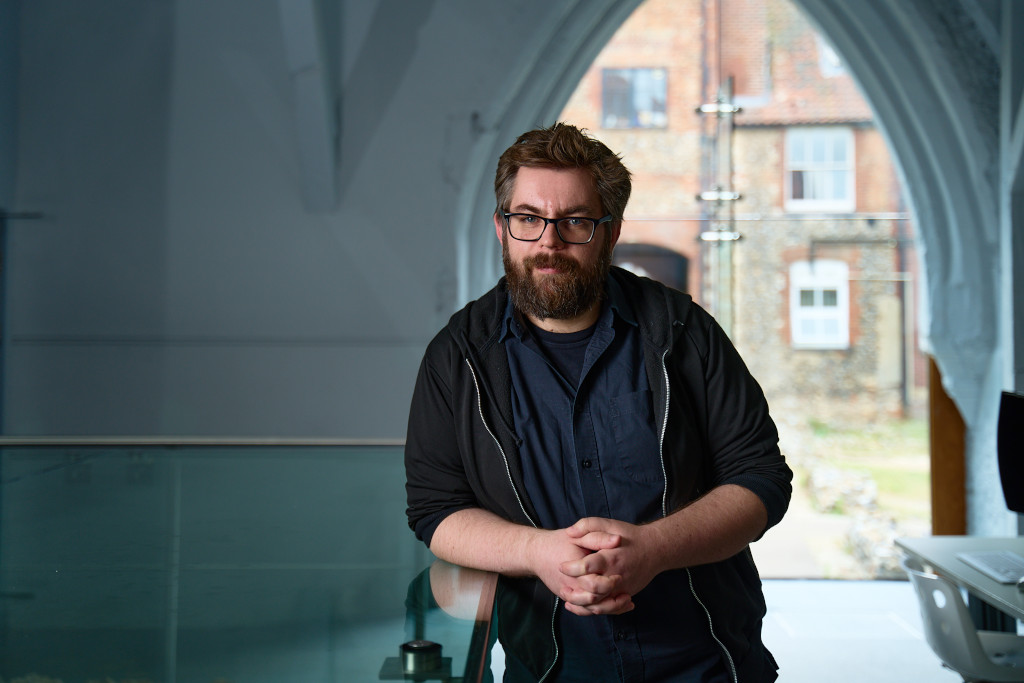
Ian Griffiths
Lecturer
-
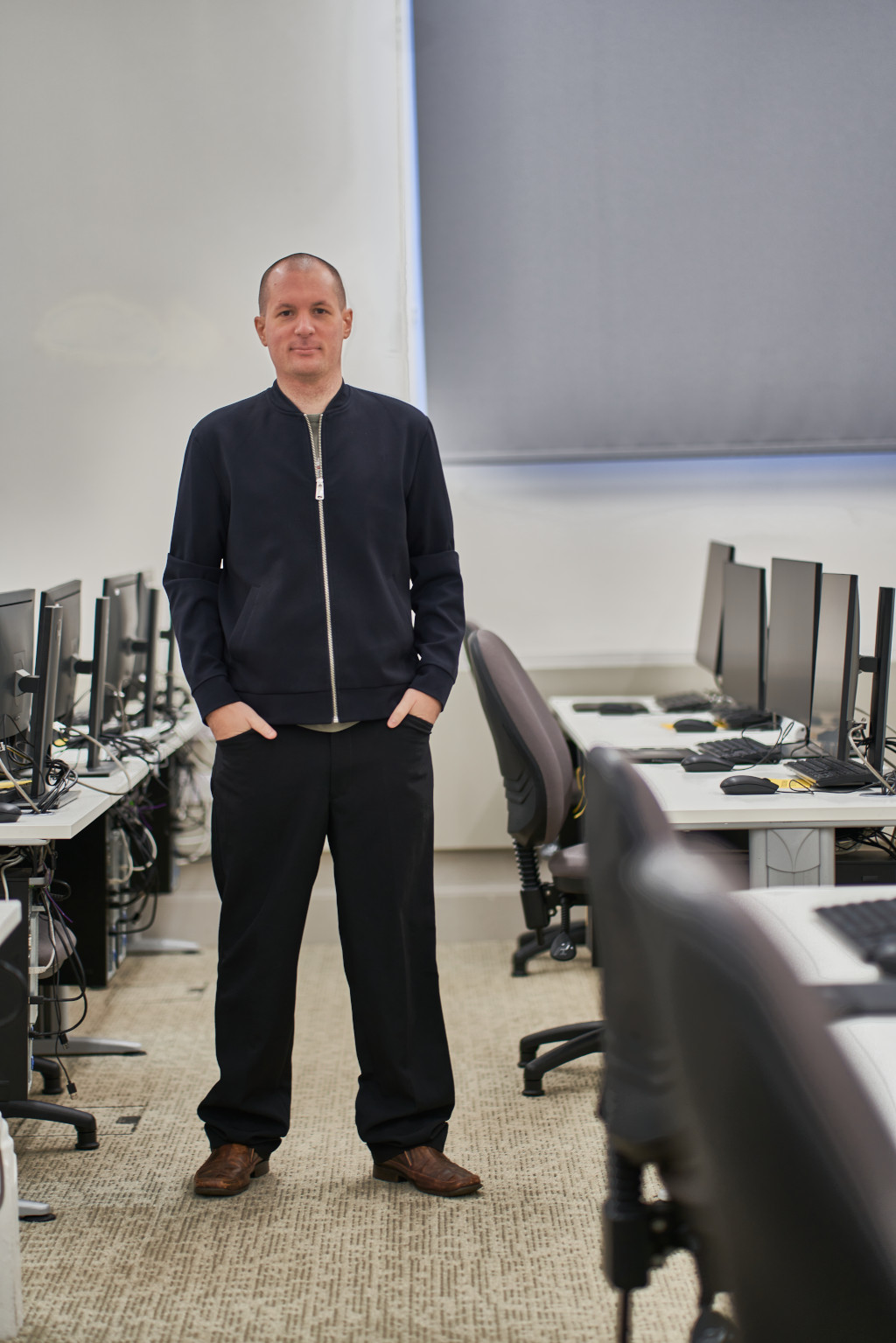
Jack Allen
Lecturer
-
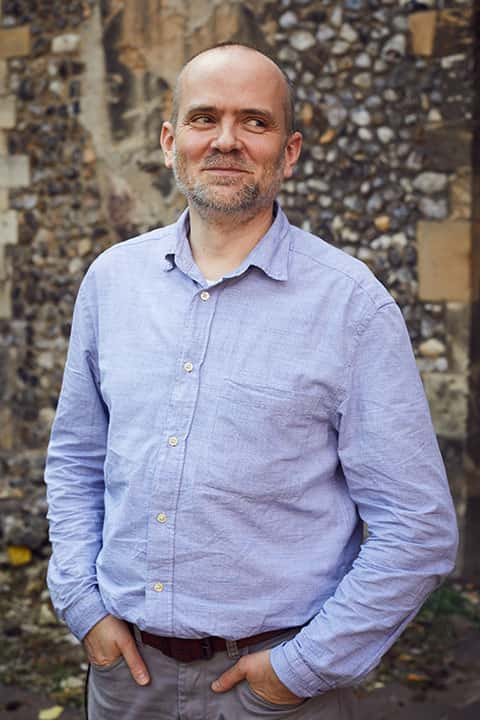
James Gibbon
Lecturer
Our Facilities
Look around our city-centre campus, and you will find studios, media labs, and creative spaces in 13 buildings that sit among the cafés, bars, independent galleries and shops of Norwich’s cultural quarter.
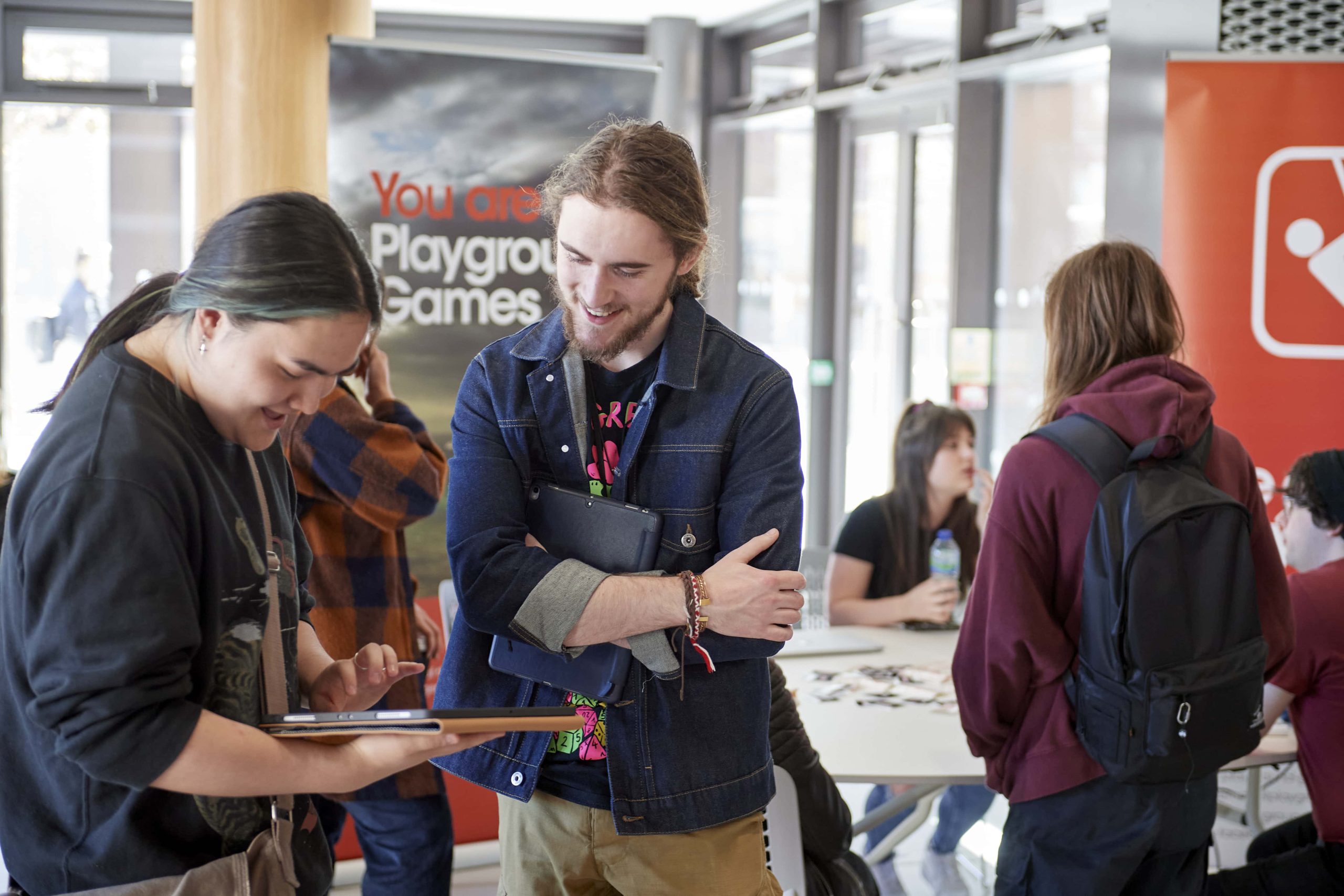
Typical career paths
Games Art and Design students have seen much success in their careers and pursuits while studying and beyond. Our graduates have gone on to become employees at Rockstar Games, Sony Interactive Entertainment Europe, Foundry 42, Rebellion, Crytek, Frontier Developments, Splash Damage, Ubisoft, and many more.
Our hall of fame includes (but is not limited to): BAFTA-winning games designers, the V&A’s first Games Designer in Residence, Dare to Be Digital finalists, Norwich Games Festival founders and organisers, Ukie Student Game Jam winners, and Transfuzer finalists.
- Environment artist
- Prop artist
- Character artist
- Concept artist
- Generalist 2D/3D artist
- Visual effects/VFX animation artist
- Technical artist
- Indie Developer
- Game designer
- Level editor
- Creative/technical sound designer
- Project manager
- Producer
- Community manager
- Creative director
- QA tester
- QA management
- Games journalist
“92% of our graduates are in employment or further education within six months of graduating”
Graduate Outcomes 2021
Entry requirements
Home
Norwich University of the Arts welcomes applicants of all ages from all backgrounds.
If the qualification that you are studying is not shown, do not worry as we are able to accept other pre-entry qualifications as well as combinations of different qualifications.
Please do contact our Student Recruitment Team if you have any queries.
A/AS Levels (GCE)
GCE A/AS Levels 3 A-level qualifications at grades BCC (104 UCAS Tariff points) or above. Where candidates are not taking 3 A-levels, Norwich University of the Arts will consider combinations of A-level/AS-level and other Level 3 qualifications.
BTEC Extended Diploma (QCF or RQF)
Distinction, Merit, Merit in an art, design or media related subject
BTEC Diploma (QCF or RQF)
Distinction*, Distinction* in an art, design or media related subject
T Levels
A T Level in any subject with overall grade A* to C (Pass)
UAL Extended Diploma
Merit
UAL Level 3 Foundation Diploma in Art and Design
Pass
UAL Level 4 Foundation Diploma in Art and Design
Pass
Foundation Diploma in Art and Design
Pass
Access to Higher Education Diploma (Art and Design)
Pass
International Baccalaureate Diploma
A minimum of 26 points
Integrated foundation year (optional)
Norwich University of the Arts welcomes applicants of all ages from all backgrounds.
If the qualification that you are studying is not shown, do not worry as we are able to accept other pre-entry qualifications as well as combinations of different qualifications.
Please do contact our Student Recruitment Team if you have any queries.
A/AS Levels (GCE)
GCE A/AS Levels 2 A-level qualifications at grades CC (64 UCAS Tariff points) or above.
BTEC Extended Diploma (QCF or RQF)
Merit, Merit, Pass in an art, design or media related subject
BTEC Diploma (QCF or RQF)
Distinction*, Merit in an art, design or media related subject
T Levels
Pass (D or E on the core)
UAL Extended Diploma
Pass
UAL Level 3 Foundation Diploma in Art and Design
Pass
UAL Level 4 Foundation Diploma in Art and Design
Pass
Foundation Diploma in Art and Design
Pass
International Baccalaureate Diploma
A minimum of 26 points
Overseas
We accept qualifications from all over the world.
To find our entry requirements from a specific country, please check our dedicated international pages.
English language qualifications
Most international students are required to hold an English language qualification. Applicants are required to have a minimum UKVI approved IELTS exam score of 6.0 overall, with a minimum of 5.5 in each section. Equivalent English language qualifications are acceptable such as, IB English language syllabus A or B/English Literature (Grade 4).
We also accept some alternative English qualifications. Learn more about our English entry requirements.
You can email us on international@norwichuni.ac.uk if you’d like to discuss your application individually.
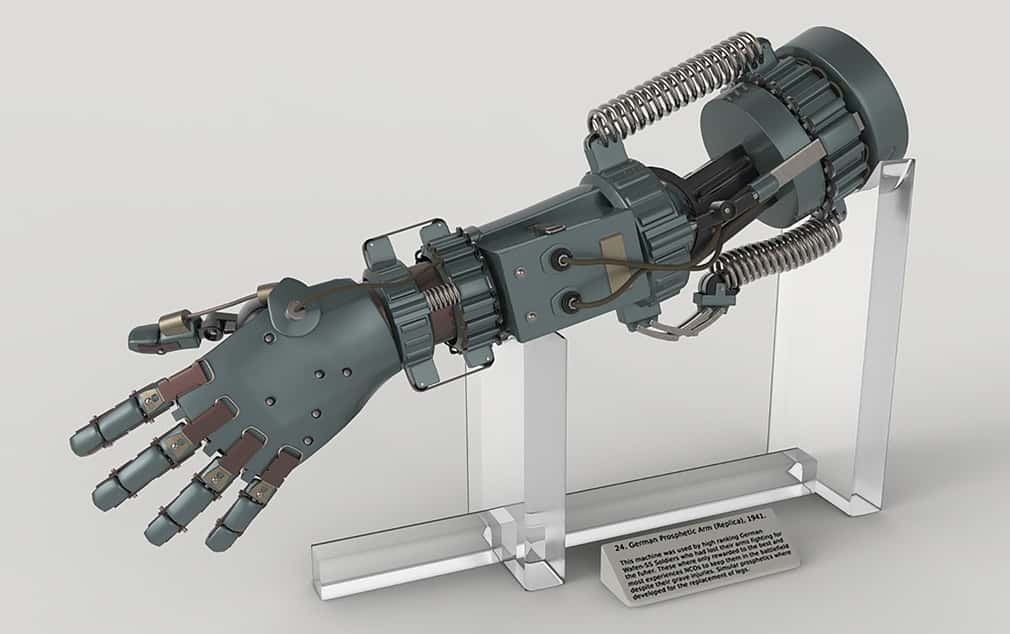
Fees and funding
Home
Tuition fees for the 2026/27 academic year
- BA course (three year): £9,790 per year
- Integrated Foundation Year (optional): £9,790 per year
- Level 5 Diploma Year (optional): £9,790 year
The level of fee that you will be asked to pay depends on whether you’re classed as a UK (home) or international student. Check your fee status.
Fees for subsequent years
Tuition fees may increase in subsequent years in line with inflation, subject to government regulations. The inflation rate used is expected to be the Retail Price Index excluding mortgage payments (RPIX). We would confirm this in advance to you of each academic year.
Find our more about fees and funding
Funding your study
Depending on your circumstances, you may qualify for a bursary, scholarship or loan to help fund your study and enhance your learning experience.
International
Tuition fees for the 2026/27 academic year
- BA course (three year): £18,860
- Integrated Foundation Year (optional): £18,860
- level 5 Diploma year (optional): £18,860
The level of fee that you will be asked to pay depends on whether you’re classed as a UK (home) or international student. Check your fee status.
Fees for subsequent years
For Overseas students starting in 2026 inflation will be applied to your fees in later years. We will confirm this in advance to you of each academic year, and we will limit the increase to no more than the Office for Students’ recommended inflationary measure.
Find our more about fees and funding
Funding your study
Please take a look at our International students page for information about fees, scholarships for international students, visas and much more.
Additional costs
Your course fees cover the cost of studies, and include loads of benefits, such as the use of our library, support from our expert employability team, access to workshops and free use of the IT equipment across our campuses. There are also other costs which you may need to consider.
How to apply
Home
All applications for undergraduate courses will need to be made via the Universities and Colleges Admissions Service (UCAS).
You’ll need our university UCAS code (N39) as well as your course code which you’ll find on your course page.
When you register with UCAS you will need include your previous and current qualifications information, personal statement, and reference.
Once we receive your application form through UCAS, we will email confirmation that we have received it and will give you access and instructions for logging into the applicant portal. Our decision will be communicated via UCAS.
Applying for an undergraduate degreeInternational
Full-time Undergraduate International applicants can either apply via UCAS or directly by completing the online application form below or emailing the downloadable form to ioadmissions@norwichuni.ac.uk
Online Application Form (opens in a new window)For further support for international applicants applying for an undergraduate degree view our international pages.
-
George Kee
Games Art and Design BA (Hons)
Rhys Anthony
Games Art and Design BA (Hons)
Emre Kulac
Games Art and Design BA (Hons)
Jack Ibbotson
Games Art and Design BA (Hons)
Aiden Galgoczi
Games Art and Design BA (Hons)
Jamie Went
Games Art and Design BA (Hons)
Jolie Elliot
Games Art and Design BA (Hons)
Megan Griib
Games Art and Design BA (Hons)
Holly Snowdon
Games Art and Design BA (Hons)
Monika Urbanek
Games Art and Design BA (Hons)
Niya Denkova
Games Art and Design BA (Hons)
Joel Tippet
Games Art and Design BA (Hons)
Sophie Li
Games Art and Design BA (Hons)
Melvin Wee
Games Art and Design BA (Hons)
Zuzanna Janicka
Games Art and Design BA (Hons)
Salene Tarling
Games Art and Design BA (Hons)
Anaïs Castro
Games Art and Design BA (Hons)
Ian Pettersen
Games Art and Design BA (Hons)

Latest news
-
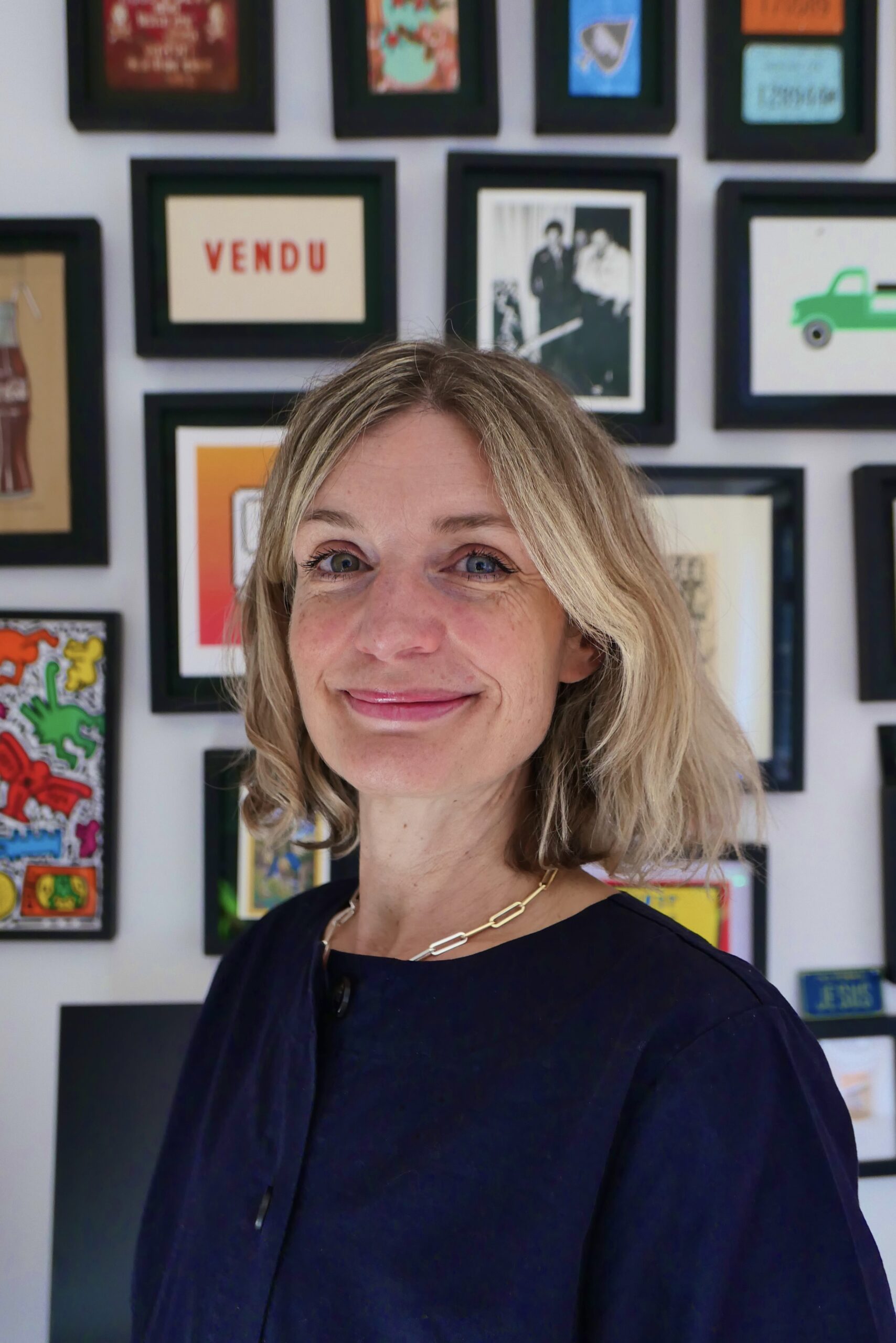 Institution •
Institution •Norwich appoints new Deputy Vice-Chancellor
Norwich University of the Arts is pleased to announce the appointment of Rebecca Wright as its new Deputy Vice-Chancellor. -
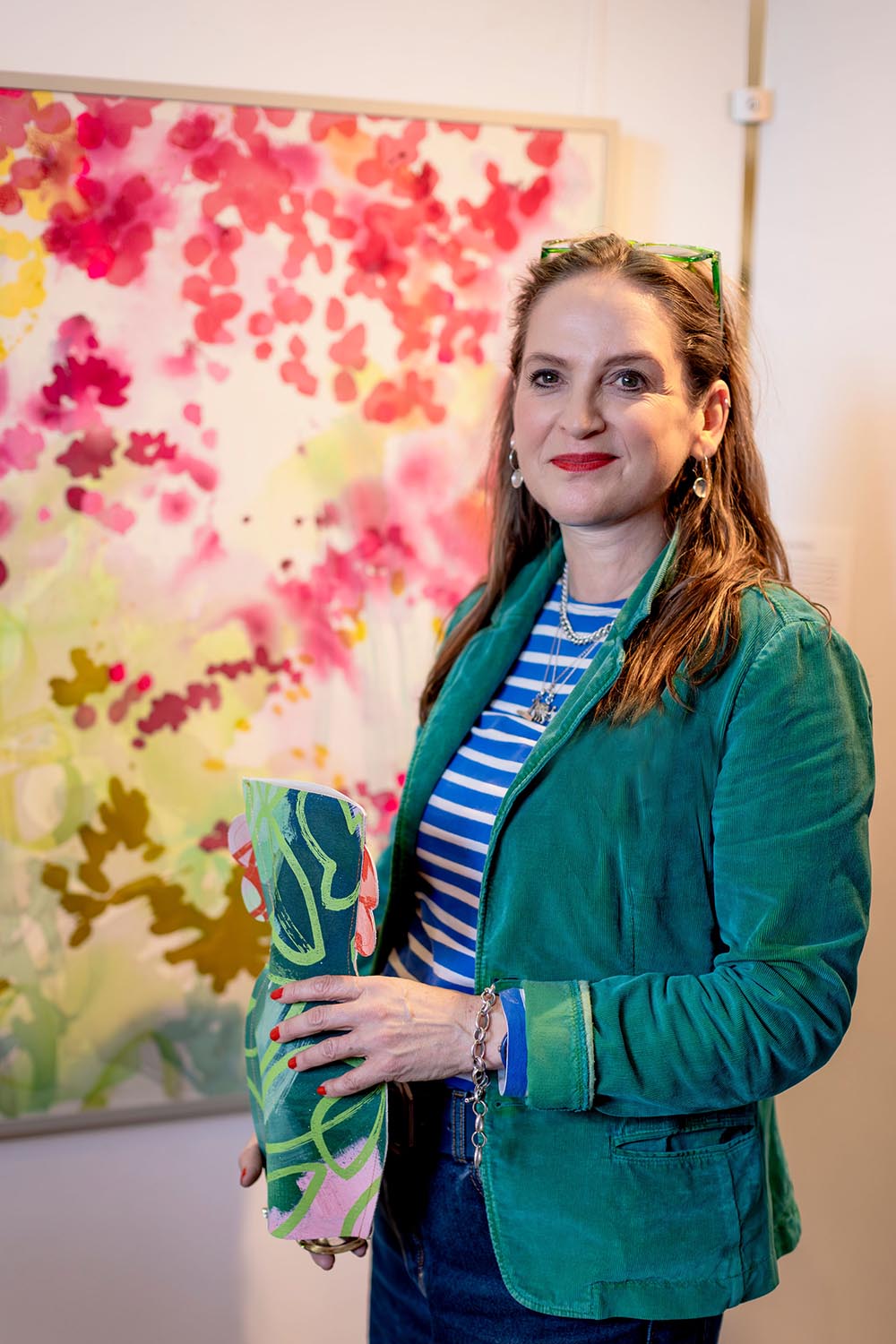 BA Textile Design •
BA Textile Design •In conversation with: Lucy Perry, MA Textile Design
Lucy shares her experience of creating a 360° digital installation, in a collaborative exploration of nature and technology. -
 Institution •
Institution •Norwich University of the Arts earns prestigious 5-star QS Star Excellence rating fo Teaching
Norwich University of the Arts has been awarded an overall four-star rating in the prestigious QS Stars University Ratings, marking a significant milestone in the University’s first-ever submission to the internationally recognised assessment framework. -
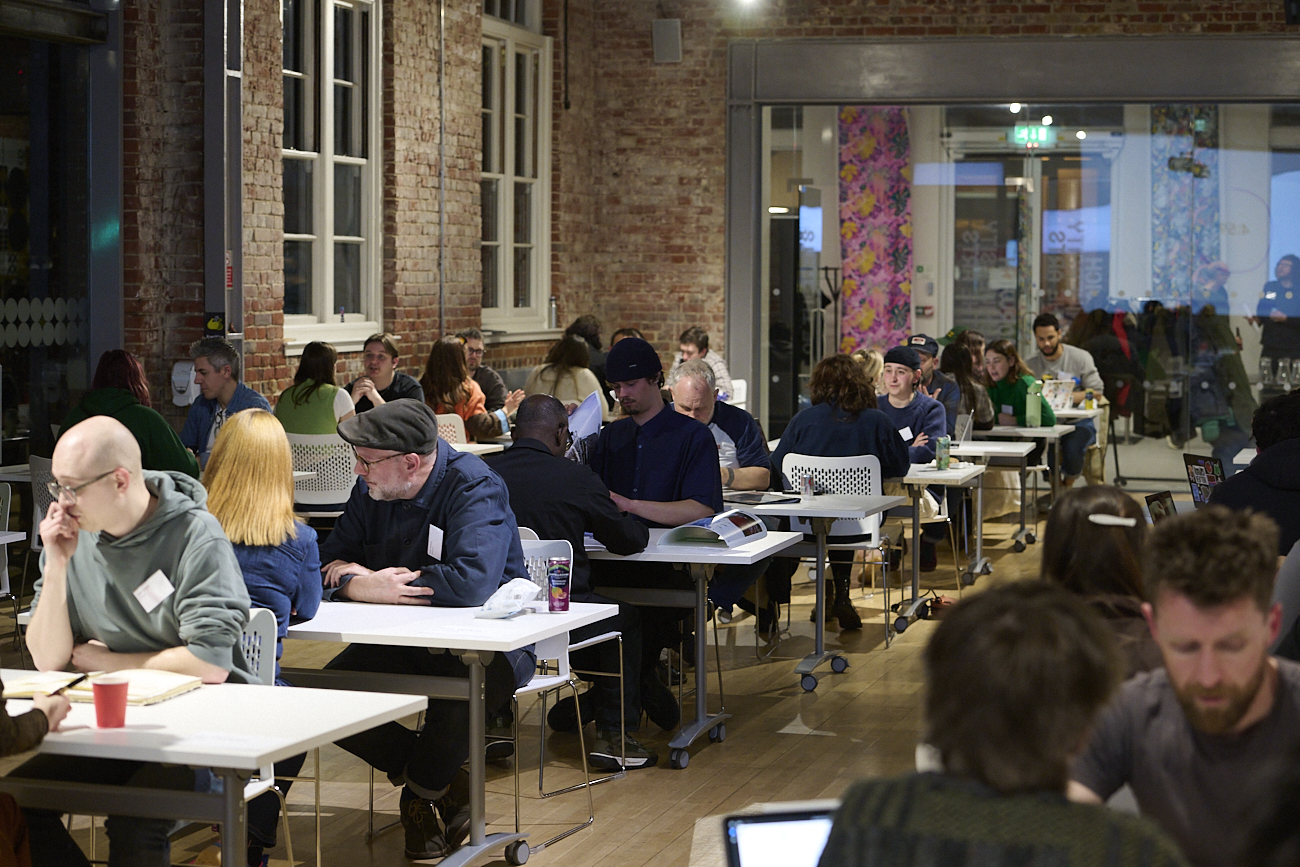 Employability •
Employability •Norwich University of the Arts celebrates 10 years of the Big Book Crit
Hundreds of Norwich students have shared their work with leading creative professionals over the last decade. -
 East Gallery •
East Gallery •Announcing the East Gallery Fellows 2025-2026
Norwich University of the Arts is pleased to announce the selected awardees of this year's East Gallery Fellowship. -
 BA Business Management •
BA Business Management •Dean of Creative Education Awarded Prestigious Principal Fellowship from Advance HE
The University is delighted to announce that Hilary Carlisle, Dean of Creative Education and Professor of Design, has been awarded Principal Fellowship of the Higher Education Academy (PFHEA) by Advance HE -
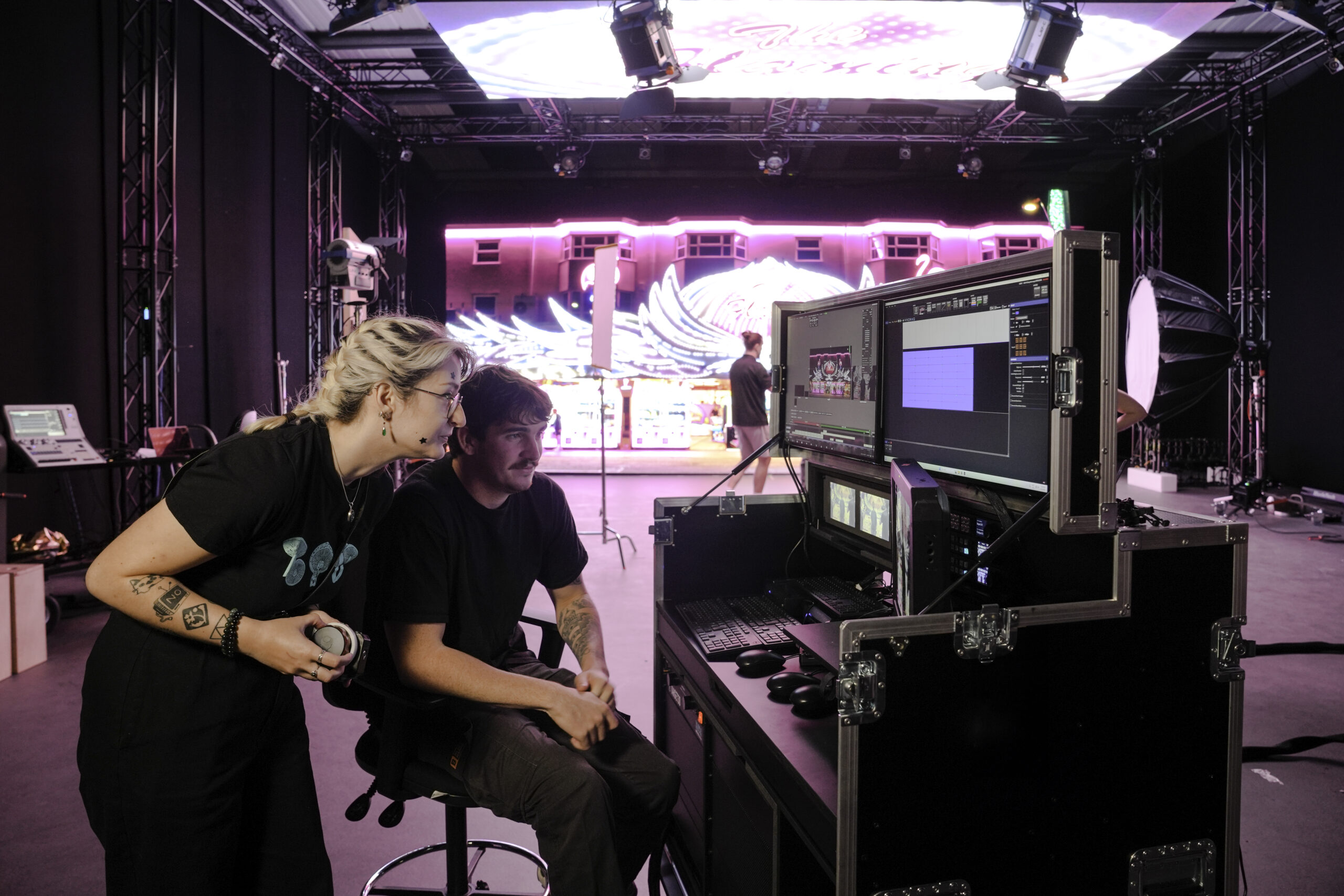 BA Degree •
BA Degree •Norwich University of the Arts to Host ELIA Academy 2027
Norwich University of the Arts is delighted to announce that it has been selected as the host institution for the ELIA Academy 2027. -
 BA Business Management •
BA Business Management •In conversation with Norwich’s newest lecturers in Marketing and Business Management
We joined Norwich's newest lecturers, Stephen Balmer-Walters and Laurie McAllister, to find out more about the University's Marketing and Business Management courses. -
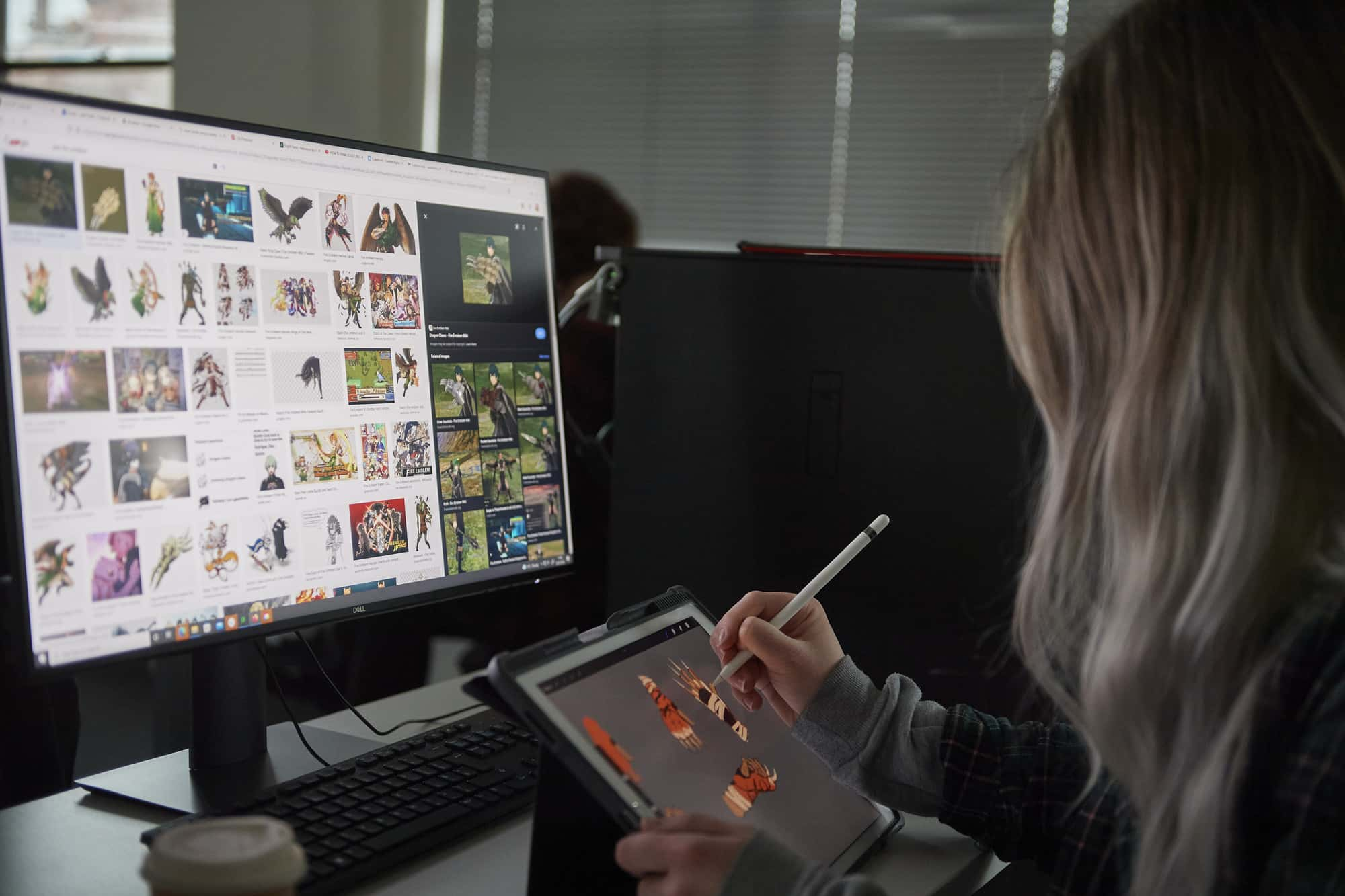 BA Games Art and Design •
BA Games Art and Design •East of England set to become UK’s next Games Cluster, says landmark report
A major new report is calling for the creation of a Games Cluster for the East of England — positioning the region as a national leader in creative technology and immersive media. -
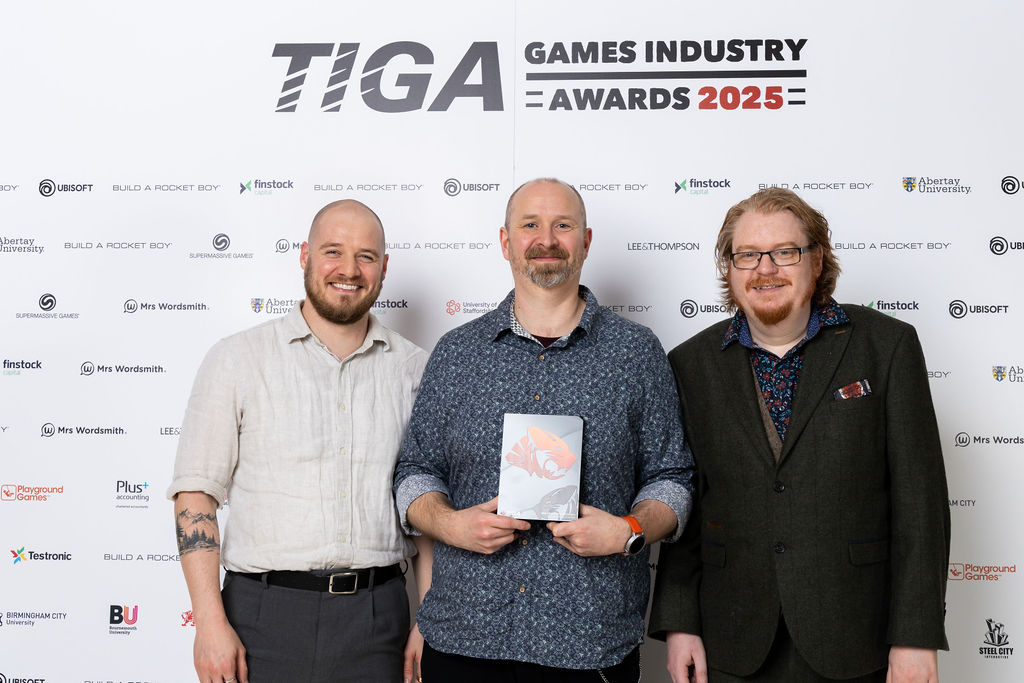 BA Games Art and Design •
BA Games Art and Design •Norwich awarded Best Education Initiative at the TIGA UK Games Industry Awards
TIGA, who represent the UK video games industry, have recognised the University’s commitment to graduate success and industry-focused learning in their 2025 awards. -
 BA Animation •
BA Animation •Cutting edge Sony Virtual Production Studio puts Norwich on the map for the future of film and gaming
Norwich University of the Arts and Sony open new landmark facility for students, creators and the community. -
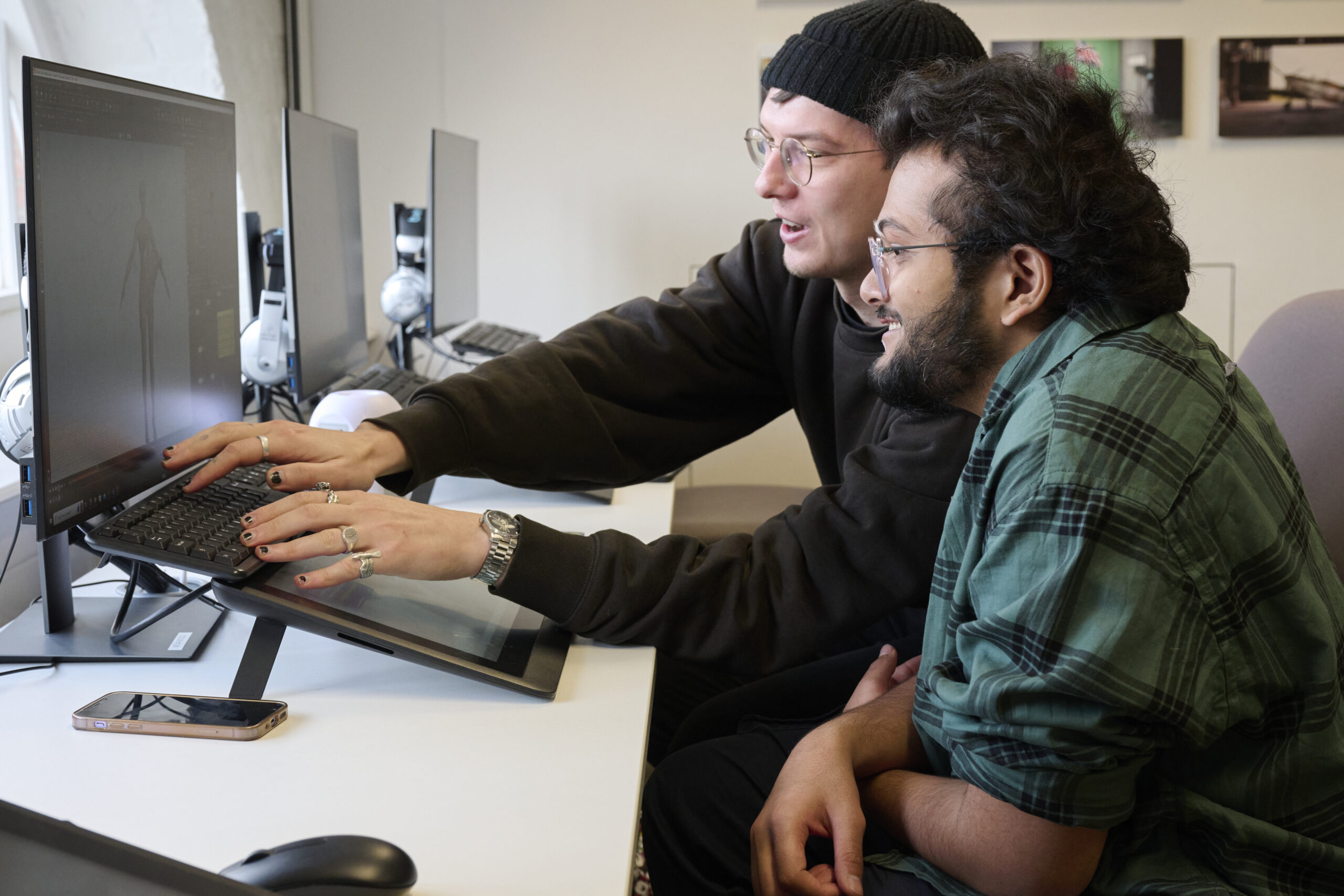 BA Animation •
BA Animation •Norwich named top UK university for production excellence in visual effects
The University has been placed in three categories in the 2025 Rookies Global School Rankings, including the top five for Production Excellence – Visual Effects. -
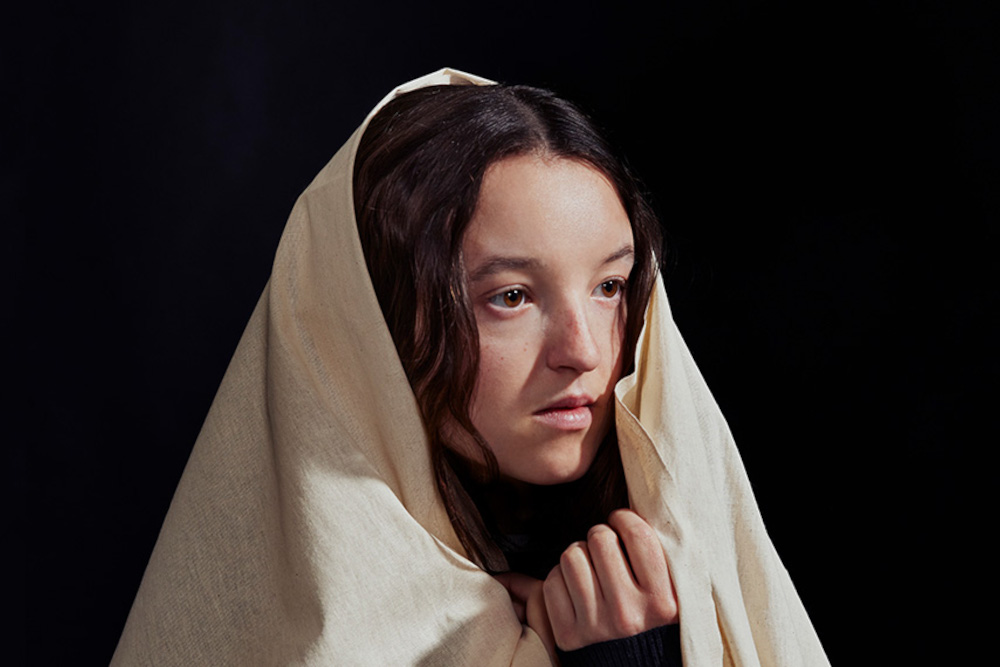 BA Photography •
BA Photography •Entries open for Norwich's 2026 Beyond the Frame photography competition
Entries are now open for our annual photography competition, open to students aged 11 to 19 around the world. -
 BSc Degree •
BSc Degree •Norwich University welcomes new academics to its Psychology and Computer Science courses
Lyndsey Wallace joins the University as Senior Lecturer for BSc (Hons) Psychology, with Jawwad Chattha joining as Course Leader for BSc (Hons) Computer Science. -
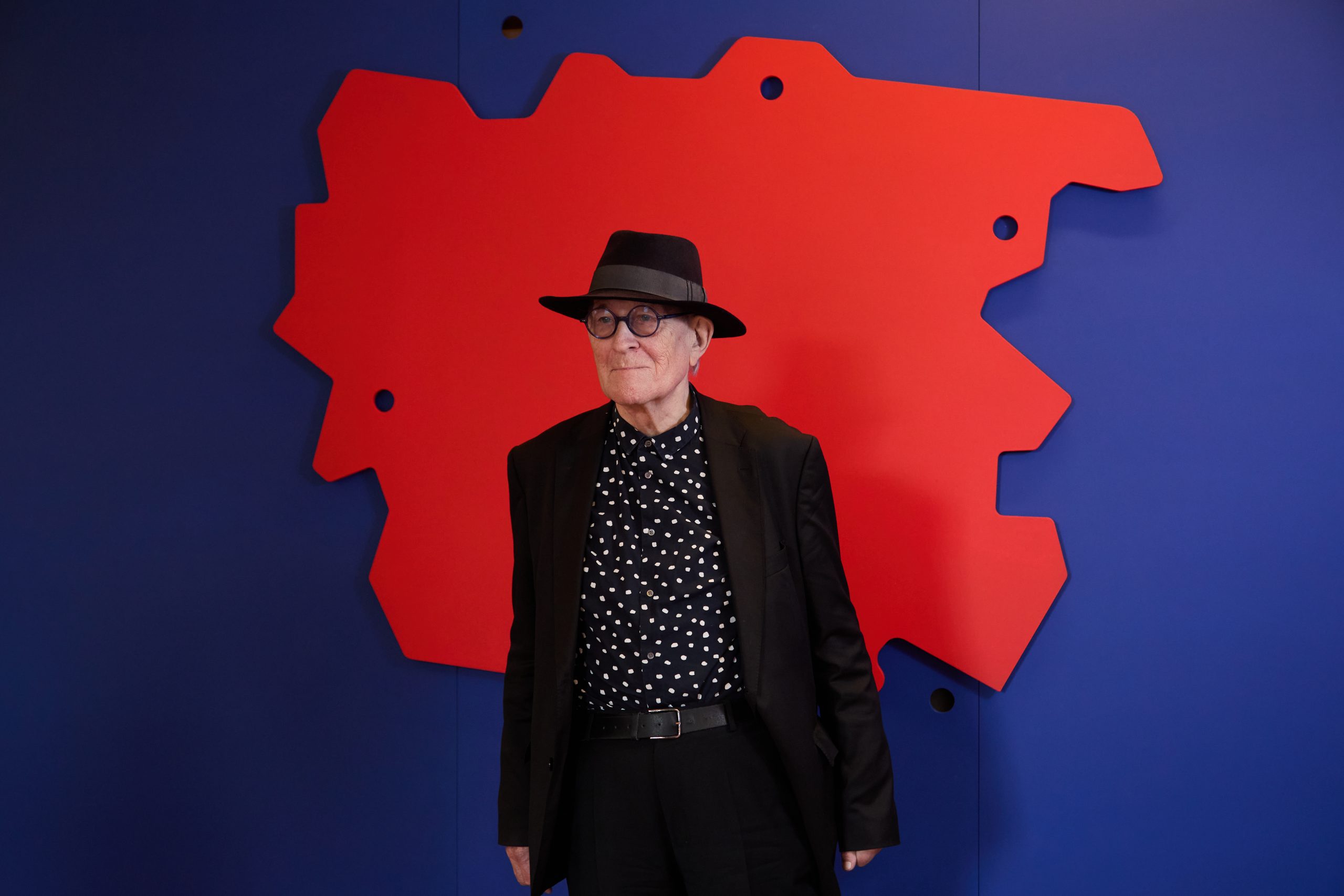 BA Architecture •
BA Architecture •Norwich University of the Arts presents the Peter Cook: Wonder Hub
Norwich University has launched the Peter Cook: Wonder Hub, a vibrant and interactive space for thinking, making, showcasing and debating the creative arts. -
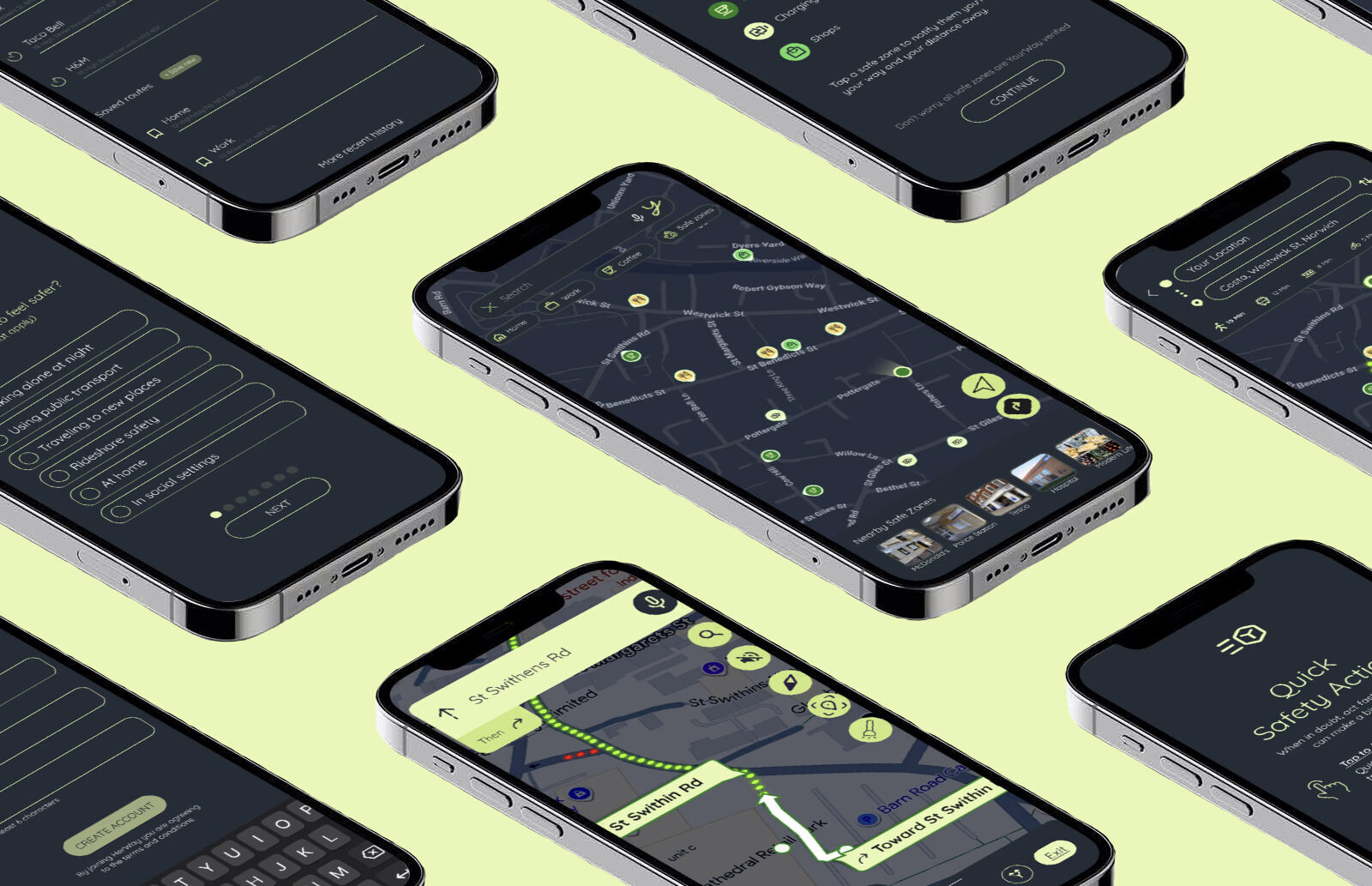 BA Graphic Communication •
BA Graphic Communication •Norwich students celebrate success at 2025 Creative Conscience Awards
Students from Norwich University of the Arts have been recognised across categories in this year’s awards, which showcase work focusing on social or environmental impact
Related courses
Discover our courses and take the first step towards unleashing your potential
-
Visit the Animation and Visual Effects BA (Hons) course page
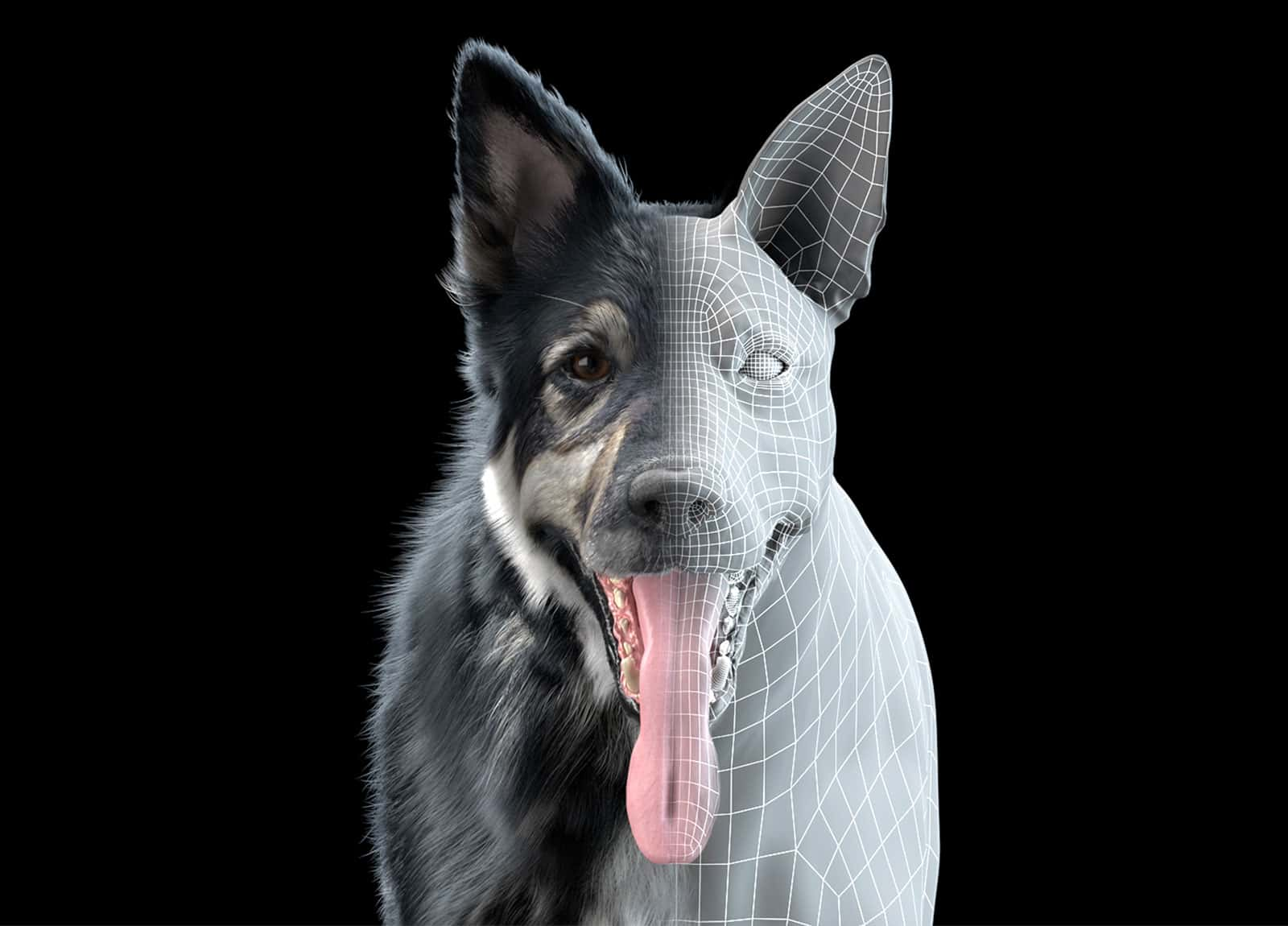
- Filter courses by study level: Undergraduate
- Filter courses by duration: Full time
- Filter courses by start month: September
- Filter courses by subject: Animation and Visual Effects
Animation and Visual Effects BA (Hons)
Wield the creative and technical skills behind the latest Hollywood movies, with teaching from the award-winning studio professionals on Norwich’s BA (Hons) Animation and Visual Effects (VFX) degree course
-
Visit the Illustration BA (Hons) course page

- Filter courses by study level: Undergraduate
- Filter courses by duration: Full time
- Filter courses by start month: September
- Filter courses by subject: Illustration
Illustration BA (Hons)
Experiment with different illustration mediums and tools as you build your creative identity and professional skills.
-

